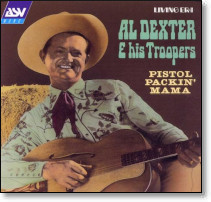Latest
2024
Jul
Jun
May
Apr
Mar
Feb
Jan
2023
Dec
Nov
Oct
Sep
Aug
Jul
Jun
May
Apr
Mar
Feb
Jan
2022
Dec
Nov
Oct
Sep
Aug
Jul
Jun
May
Apr
Mar
Feb
Jan
2021
Dec
Nov
Oct
Sep
Aug
Jul
Jun
May
Apr
Mar
Feb
Jan
2020
Dec
Nov
Oct
Sep
Aug
Jul
Jun
May
Apr
Mar
Feb
Jan
2019
Dec
Nov
Oct
Sep
Aug
Jul
Jun
May
Apr
Mar
Feb
Jan
2018
Dec
Nov
Oct
Sep
Aug
Jul
Jun
May
Apr
Mar
Feb
Jan
2017
Dec
Nov
Oct
Sep
Aug
Jul
Jun
May
Apr
Mar
Feb
Jan
2016
Dec
Nov
Oct
Sep
Aug
Jul
Jun
May
Apr
Mar
Feb
Jan
2015
Dec
Nov
Oct
Sep
Aug
Jul
Jun
May
Apr
Mar
Feb
Jan
2014
Dec
Nov
Oct
Sep
Aug
Jul
Jun
May
Apr
Mar
Feb
Jan
2013
Dec
Nov
Oct
Sep
Aug
Jul
Jun
May
Apr
Mar
Feb
Jan
2012
Dec
Nov
Oct
Sep
Aug
Jul
Jun
May
Apr
Mar
Feb
Jan
2011
Dec
Nov
Oct
Sep
Aug
Jul
Jun
May
Apr
Mar
Feb
Jan
2010
Dec
Nov
Oct
Sep
Aug
Jul
Jun
May
Apr
Mar
Feb
Jan
2009
Dec
Nov
Oct
Sep
Aug
Jul
Jun
May
Apr
Mar
Feb
Jan
2008
Dec
Nov
Oct
Sep
Aug
Jul
Jun
May
Apr
Mar
Feb
Jan
2007
Dec
Nov
Oct
Sep
Aug
Jul
Jun
May
Apr
Mar
Feb
Jan
2006
Dec
Nov
Oct
Sep
Aug
Jul
Jun
May
Apr
Mar
Feb
Jan
2005
Dec
Nov
Oct
Sep
Aug
Jul
Jun
May
Apr
Mar
Feb
Jan
2004
Dec
Nov
Oct
Sep
Aug
Jul
Jun
May
Apr
Mar
Feb
Jan
2003
Dec
Nov
Oct
Sep
Aug
Jul
Jun
May
Apr
Mar
Feb
Jan
2002
Dec
Nov
Oct
Sep
Aug
Jul
Jun
May
Apr
Mar
Feb
Jan
2001
Dec
Oct
Sep
Aug
Jul
Jun
May
Apr
Mar
Feb
Monday, February 28, 2022
Music Week
 |
 |
 |
 |
Expanded blog post, February archive (finished).
Tweet: Music Week: 43 albums (or 50?), 4 A-list (or 2?), a belated step toward closing out 2021, a much deserved book plug, some indexing, some more notes on war and politics and the waste of time that is Facebook.
Music: Current count 37418 [37375] rated (+43), 144 [139] unrated (+5).
Rated count is down a bit (although still high by historic standards). Feels like I've been working as hard as ever, but I've been having more trouble deciding what to listen to next, so I guess I've had more dead air. [PS: The actual list below is sightly larger than the count, as I moved records I reviewed while working on this post up, so that the frozen 2021 list aligns with this post and the February Streamnotes archive. Yes, my freeze date is later than usual this year, but the deed has been done.]
The A-list was down even more, but I promoted two reissues at the last minute. The only problem with the Cuba compilation(s) is that I wasn't able to listen to the whole thing(s), so I'm extrapolating from Spotify playlists that are about 1/3 short. Also, I assume the booklets are up to snuff, as they usually are with this label, but haven't seen them, leaving me more ignorant than I should be. The Tony Williams disc combines two Blue Note albums I previously rated A- and B+. I came out of this not sure why I didn't have the grades flipped, but the piano/vibes pieces on the former probably get better, and Sam Rivers delivers instant pleasure.
Speaking of Rivers, Rick Lopez has converted and expanded his extraordinary Sam Rivers Sessionography into a gorgeous 720-page book. To order a copy ($55 postpaid in US, inquire for foreign shipping) or otherwise make a donation go to the PreSale Page. Back in 2014, Lopez published The William Parker Sessionography, which (in HTML form) I had found invaluable in researching my Consumer Guide to William Parker, Matthew Shipp, et al.. I raved about his work there, and was delighted to see myself quoted for a blurb ("treasure trove of information, some of the finest scholarship available on the internet today"). It's not often I say something quotably laudatory, but I'm proud to be associated with his work.
Late posting of this (Tuesday afternoon, but official date is still in February) is mostly because I finally took the time to update my indexing. I had fallen four months behind, and a side effect is that I caught myself re-reviewing several records. I've always known that my slapdash system is prone to errors, and the ones I've dealt with run the gamut. Worse, as I fix them, they leave discrepancies in other (usually more temporary) sources. At some point, a monumental re-engineering of the website would seem to be in order. But I doubt I'll ever get to that (although I did receive an intriguing letter expressing interest in working on such a thing).
I expect to wrap up the EOY aggregates and associated lists this week. It would have been nice to tie it all together by now, but I still have a few odds and ends to attend to. Maybe next week I'll be able to provide some sort of statistical summary for 2021.
On Saturday I posted a rather long Speaking of Ukraine, which is still largely relevant to understanding the conflict, even if there isn't much you can do about it. I later tried to rewrite a bit on sanctions, but didn't achieve the desired clarity. Let's see if I can do better here:
- It should be understood that US sanctions, amplified by so-called allies, against Russia had a direct and significant role in creating and intensifying the conflict, And while they were not responsible for Russia deciding to invade Ukraine, the belief that the US could compel Russian submission by tightening sanctions further did much to provoke the current war.
- However, once Russia invaded, further sanctions became not only justified but the preferred response from the US, as they are serious but much less inflammatory than the military response the US would no doubt prefer if Russia was incapable of fighting back in kind.
- The efficacy of sanctions to end a war has never been proven, but will be sorely tested here. (That sanctions can lead to war has been repeatedly shown, both as targets decided to fight back and as the sanctioners escalated to military offenses -- as Bush, for instance, did in is 2003 invasion of Iraq.)
- As long as Russian troops are occupying Ukraine, I don't care how severe sanctions become (although I would try to avoid imposing real humanitarian hardships on the Russian people, whose control over and responsibility for Putin's belligerence is limited). (By the way, I would have supported similar sanctions against Israel following their 1967 war, and against the US following the 2003 invasion of Iraq.)
- Once Russia withdraws, there should be a clear path to ending the sanctions regime, and restoring peace and commercial ties. I doubt this can happen immediately, but should occur through the diplomacy that should have happened before Russia resorted to invasion.
- We should realize that the US has no power to hold Putin accountable for what in a fair and honest world would universally be recognized as crimes. Conflicts need to end on terms that all sides consider just (as much as is mutually possible), and that generally means that no side should wind up in a position to command the other. Demonization of Putin (like the earlier charges against Saddam Hussein) only serves to poison the possible grounds for settlement. (On the other hand, if the Russian people chose to settle with Putin as the Italians did Mussolini, I wouldn't demur.)
- If you want to prevent future wars, deal early with the injustices that lead to conflicts and ultimately to war. What doesn't work is the ideology of imposing strength, "shock and awe," and raw punishment.
I basically wasted Sunday on Facebook, writing comments on Ukraine and plugging my piece. As far as I know, these had no effect whatsoever, and none of the posts appeared again in my Facebook feed. I don't know where where Facebook comments go to die -- probably just into the AI grinder to figure out new and even more inept ways of getting under your skin with targeted advertising -- but mine often wind up in my notebook: I was pleased that I came up with a little story and point each time, rather than just linking to my piece. Of course, I have thousands of pages of these gems archived now -- so much so that even my wife's eyes glaze over when asked to pick a few out. Like a fish, struggling just sets the hook deeper.
One comment I can find again, because I copied it into a post of my own, so it shows up in my (mostly public) timeline. I wrote it in response to a right-wing relative's meme echo, which read: "Those of you that voted for Biden, here's your chance to brag! What has he done so far that you're most excited about." The half-dozen comments preceding mine didn't offer a single word of support, so I figured someone should step up. I've never not been critical of a Democratic President -- my first was JFK and LBJ (Vietnam!), although retrospectively I blame Truman for the Cold War and Korea, as well as for facilitating the right's first efforts to smash unions and deregulate banking -- and I wound up writing twice as much (not all but mostly critical) in my notebooks on Obama as I had on the more obviously reprehensible Bush. (My critiques of the Carter and Clinton presidencies are less well documented, but rest assured that they were often scathing. I now believe I was especially prescient about Clinton and Iraq, which paved the way for Bush.) But Biden is so maliciously assaulted by so many people who clearly know nothing and care nothing about the world we live in that I felt the need to speak back. And given the terms of the question, it was easy to construct an answer, and necessary to share it. (By the way, special thanks to Art Protin for the "1 share.")
Sure, I may come to regret the "I still love Joe Biden," but that was something I felt the people I was responding needed to hear. And I did care enough about them to go with "all them nay-sayers" instead of the first word that popped into my mind: assholes. Fat lot of good it did me. The only written reply read "you're definitely in the wrong place. I didn't even waste my time reading bc I can tell you are a spoon." (Spoon?) The rest were stock memes, like a picture of a crack pipe captioned "moments before this comment was made." So much for reasoned dialogue with the right. I don't like shilling for a party that's only half-right half the time, but the Republicans are so far off the deep end they're giving us no other option.
I don't have much enthusiasm for another Speaking of Which later this week, but getting "mugged by reality" is becoming a regular occurrence.
By the way, I should note that I'm not soliciting "followers" on Facebook. I only joined up because my less-than-sociable niblings were there, as well as a smattering of other relatives, and I wanted to check up on them. I added a few old friends, and eventually agreed to a few music-interested acquaintances, the minimal requirement being people I had personal correspondence with. (Of course, if you do think you qualify, by all means send me a "friend request.") I rarely post on Facebook, and when I do it's usually just food pics (which seem to be more popular than anything I have to say about politics or music). I do, on occasion, post and/or comment in the Expert Witness Facebook group, which can be (but rarely is) used as a discussion forum for my Music Week posts. A better way to follow my writing is through Twitter. I also run a generally quiescent email list about websites (mostly the Robert Christgau site, and my own), so if you want in on that, mail me. Or you can always ask a question.
New records reviewed this week:
- 75 Dollar Bill Featuring Barry Weisblat: Social Music at Troost Vol. 1 (2017 [2021], self-released): [bc]: B+(***)
- 75 Dollar Bill Featuring David Watson: Social Music at Troost Vol. 2 (2017 [2021], self-released): [bc]: B+(*)
- Beauty Pill: Instant Night (2021, Northern Spy, EP): [r]: B+(*)
- Dahveed Behroozi: Echos (2021, Sunnyside): [r]: B+(*)
- John Blum/Jackson Krall: Duplexity (2018 [2020], Relative Pitch): [r]: B+(***)
- Bruiser Wolf: Dope Game Stupid (2021, Bruiser Brigade): [bc]: B+(*)
- Glenn Close/Ted Nash: Transformation (2021, Tiger Turn): [sp]: B+(***)
- Conway the Machine: La Maquina (2021, De Rap Winkel): [r]:
- Cryptic One & Jestoneart: Pirata (2021, Centrifugal Phorce): [bc]: B+(***)
- Daggerboard: Daggerboard & the Skipper (2020-21 [2022], Wide Hive): [cd]: B+(*)
- Deafheaven: Infinite Granite (2021, Sargent House): [r]: B+(*)
- The Delines: The Sea Drift (2022, Jealous Butcher): [r]: B+(**)
- Dialect: Under~Between (2021, RVNG Intl): [bc]: B+(*)
- Jon Durant & Stephan Thelen: Crossings (2020 [2021], Alchemy): [bc]: B+(**)
- Gabby Fluke-Mogul: Threshold (2020 [2021], Relative Pitch): [r]: B+(*)
- Colleen Green: Cool (2021, Hardly Art): [bc]: B+(**)
- Guedra Guedra: Vexillology (2021, On the Corner): [bc]: B+(**)
- Shay Hazan Quintet: Nuff Headlines (2019 [2021], Chant): [bc]: B+(**)
- Daniel Herskedal: Harbor (2021, Edition): [r]: B
- Hinda Hoffman Meets Soul Message: People (2021 [2022], Know You Know): [cd]: B+(*)
- Ethan Iverson: Every Note Is True (2022, Blue Note): [r]: B+(**)
- Durand Jones & the Indications: Private Space (2021, Dead Oceans): [r]: A-
- Topaz Jones: Don't Go Tellin' Your Momma (2021, New Funk Academy/Black Canopy): [r]: B+(**)
- Kojaque: Town's Dead (2021, PIAS): [r]: B+(*)
- Peter McEachern: Code 2 (2021, SteepleChase LookOut): [r]: B+(***)
- Menahan Street Band: The Exciting Sounds of Menahan Street Band (2021, Daptone): [r]: B-
- Mimz & Dunn: Infinite Lawn (2021, self-released): [bc]: B
- Mother Nature and BoatHouse: SZNZ (2021, Closed Sessions): [bc]: B+(***)
- Kim Nalley Band With Houston Person: I Want a Little Boy (2022, Kim Nalley Productions): [cd]: B+(***)
- New Age Doom: Lee Scratch Perry's Guide to the Universe (2021, We Are Busy Bodies): [r]: B+(**)
- Sergio Pereira: Finesse (2022, Sedajazz): [cd]: B+(*)
- Matt Piet: (Pentimento) (2020 [2021], Amalgam): [bc]: B+(**)
- Raxon: Sound of Mind (2021, Kompakt): [r]: B+(***)
- Adam Rudolph Go: Organic Guitar Orchestra: Resonant Bodies (2015 [2021], Meta): [r]: B+(*)
- Ståhls Trio: Källtorp Sessions Volume Two (2017-18 [2021], Moserobie): [cd]: B+(***)
- Natsuki Tamura: Summer Tree (2021 [2022], Libra): [cd]: B+(*)
- Stephan Thelen: Fractal Guitar 2 (2019-20 [2021], MoonJune): [bc]: A-
- Don Toliver: Life of a Don (2021, Cactus Jack/Atlantic): [r]: B+(**)
- The Underflow: Instant Opaque Evening (2020 [2021], Blue Chopsticks): [r]: B
- Martin Wind/New York Bass Quartet: Air (2021 [2022], Laika): [cd]: B+(*)
- Yeule: Glitch Princess (2022, Bayonet): [r]: B+(**)
- Denny Zeitlin/George Marsh: Telepathy (2019 [2021], Sunnyside): [r]: B+(**)
Recent reissues, compilations, and vault discoveries:
- Cuba: Music and Revolution: Culture Clash in Havana Cuba: Experiments in Latin Music 1975-85 Vol. 1 (1975-85 [2021], Soul Jazz, 2CD): [sp]: B+(***)
- Cuba: Music and Revolution: Culture Clash in Havana: Experiments in Latin Music 1973-85 Vol. 2 (1973-85 [2021], Soul Jazz, 2CD): [sp]: A-
- Anthony Williams: Life Time & Spring Revisited (1964-65 [2022], Ezz-Thetics): [bc]: A-
Old music:
- Cleveland Eaton: Plenty Good Eaton (1974 [2020], Black Jazz/Real Gone Music): [r]: B+(*)
- Sheila Jordan: Sheila (1977 [1978], SteepleChase): [sp]: B+(***)
- Sheila Jordan & E.S.P. Trio: Sheila's Back in Town (1998 [1999], Splasc(H)): [sp]: B+(**)
Unpacking: Found in the mail last week:
- Armen Donelian: Fresh Start (Sunnyside) [04-01]
- Eubanks Evans Experience: EEE (Imani) [03-18]
- The Grace Fox Big Band: Eleven O Seven (Next Level/Blue Collar) [03-11]
- Jacob Garchik: Assembly (Yestereve) [05-13]
- Gordon Grdina: The Music of Tim Berne: Oddly Enough (Attaboygirl) [02-18]
- Gordon Grdina's Haram With Marc Ribot: Night's Quietest Hour (Attaboygirl) [02-18]
- Calvin Johnson Jr.: Notes of a Native Son (self-released) [02-18]
- Benji Kaplan: Something Here Inside (Wise Cat) [05-06]
- Kind Folk: Head Towards the Center (Fresh Sound New Talent) [04-29]
- Michael Leonhart Orchestra: The Normyn Suites (Sunnyside) [03-25]
- Myra Melford's Fire and Water Quintet: For the Love of Fire and Water (RogueArt) [04-01]
- Ståhls Trio: Källtorp Sessions Volume Two (Moserobie -21)
Sunday, February 27, 2022
Daily Log
Laura Tillem posted this to Facebook:
Remembering the people in the Baghdad restaurant that US bombed to open shock and awe. This is not to excuse putin, as some claim, but to express horror that it's happening to Ukraine now and hope the Russian antiwar movement can succeed where we failed.
I added this comment:
We tend to overestimate the power of dictators, so we're always surprised when they fall, and more often than not they eventually do, when they lose confidence with the insiders, bureaucrats, and patrons that supported them in the first place. I think it was the fall of Krushchev that made me realize that totalitarianism was just a propaganda word masking a much more complex and nuanced reality. Putin should know this better than most, as he worked his way inside the upper echelons of the Kremlin to topple Yeltsin before he submitted his name to the voters for applause. The antiwar movement doesn't have to be overwhelmingly popular to work. It just needs to convince the hidden powers behind Putin that their boy is no longer up to the task of being the front man. Same thing for sanctions: they don't have to starve Russians into submission (as was Churchill's fantasy in WWI), but the more they sap the wealth of the oligarchs behind Putin, the more inept he will look.
Gail Pellett linked to an article: Maria Sheahan/Sarah Marsh: Germany to increase defence spending in response to 'Putin's war' - Scholz. She wrote:
A seismic shift in German militarism/defense policy. Historic speech this morning. The applause to Chancellor Scholz' speech is depressing. We are now officially in a huge new Cold War. Where militarism will reign. What a step backward on the globe when our energies and funding should be focused on saving the planet and solving inequality, homelessness. Thank you Putin. But the "West" is not blameless.
I commented:
I remember Robert Calvert did a concept album in 1974 about the return of German militarism, called "Captain Lockheed and the Starfighters," based on Germany's purchase of F-104 fighter-bombers (the one with the straight stubby wings that was unstable and crashed often; i.e., the most useless plane the US produced, at least up to the F-35 mentioned in the article). The actual story turned out to be more prosaic: Lockheed bribed German defense planners to make the sale, who had to buy something to humor the Americans. If Germany realized by the 1970s that NATO was basically just an arms-selling cartel, they surely do now. Germany and France would have preferred a negotiated settlement that let them do business with both Russia and Ukraine, but Putin took that option off the table, so their best option now is to butter up the Americans. It may be a big relative increase, but it's small change compared to the risks to gas prices and finance deals. And if they get the kickback deal they're asking for (build the planes in Europe), they're really just subsidizing themselves.
Allen Lowe posted this on Facebook:
I say this as someone who thinks the Russian invasion of Ukraine is an abomination and a war crime . . . The networks that I've watched have done an admirable Job covering the local implications of the Russian invasion, the threats to civilians and the potential atrocities. So here's my question: where were these same networks, like CNN, when we invaded Iraq and initiated a war that led to the deaths, conservatively estimated, of at least 300,000 civilians?
I had to comment on that, too:
They were embedded with US troops, cheering them on. My favorite story from the early days of the US invasion was how embedded Thomas Ricks reported Iraqis cheering American troops as liberators, while Arabic-speaking Anthony Shadid followed the same procession and reported what Iraqis were actually saying after the troops passed. Of course, Shadid's reporting was little noticed until 2 years later, when he published his book "Night Draws Near." A year later, Ricks reorganized his own reporting into book form, but by then the damage had already been done, and his title changed to "Fiasco: The American Military Adventure in Iraq."
Michael Tatum posted:
The same people who agree with Trump that Putin's invading Ukraine is the equivalent of seizing prime real estate are the same ones who thought Trump kicking black people out of their homes to build his godforsaken casinos was "good business."
I commented:
Of course, the Trump family's history of racist discrimination in housing goes well back before his casino days. I didn't dwell on Trump's take on Ukraine in yesterday's post on Ukraine because I thought it was too stupid to dwell on, but at least the Levitz piece has the links. I was more concerned with more pernicious forms of misunderstanding.
It occurred to me that I wasn't very systematic about that concern. In particular, I didn't bother with Anne Applebaum's idiotic anti-Putin rant. (Reason there was that it was published in The Atlantic, and I didn't want to waste a free article on her bullshit.)
Cale Siler posted a taunting meme: "Those of you that voted for Biden, here's your chance to brag! What has he done so far that you're most excited about." None of the previous comments had offered anything substantive, but I saw it as a fat pitch deserving of a home run comment:
Sure, but there's so much, where to start? The economy has boomed since Biden took office. And while that probably would have happened with any president but Trump, this recovery has included higher wages for workers, not just more profits for the already rich (who sucked up literally all of the long recoveries under Reagan and Obama). Even minus "inflation" (price gouging is more like it), most people are coming out ahead -- a situation that would be improved if only Democrats had enough votes to pass Build Back Better (or if Republicans cared about working people). Then there's Afghanistan, an open sore three presidents (including Trump, who insisted on dropping "the mother of all bombs" there to see how close he could get to using nukes) have been picking at for 20+ years. Sure, it got ugly, but when generals and pundits (and especially Republicans) wavered, Biden alone had the courage to get over with it. Biden passed the first serious infrastructure investment bill in decades. And he reversed dozens of Trump executive orders, especially ones meant to increase pollution. Of course, he could have done much more if Democrats had larger majorities in Congress, and a decent shake from the Courts. (To which he's finally nominated someone who will try to protect our rights, instead of stripping them away, like the Federalist Society clique Trump and Bush nominated.) I'm not wild about the way Biden has handled the crisis in Ukraine -- I wrote a lot about that on my blog yesterday -- but at least he's presenting a consistent, unified, and sober response to Putin's aggression, a vast improvement over the passive-aggressive schizophrenia Trump showed. You know, I've followed Biden ever since he got elected to the Senate, and I've never been any sort of fan, and I was also very disappointed in the first year presidencies of Clinton (NAFTA) and Obama (escalation in Afghanistan and "stress tests" instead of prosecution for crooked bankers), but one year in I admit it: I still love Joe Biden. I just wish all you nay-sayers would shut up and give him a chance to do even more good than he already has.
This elicited a reply from Regan Hayden Siler (followed by an emoji I don't recognize and an American flag):
Tom Hull idk who you are but you're definitely in the wrong place. I didn't even waste my time reading bc I can tell you are a spoon. You're delusional if you think our country is in good shape right now. Move along.
Cale responded twice: once with a GIF of someone eating popcorn, from a huge bag; the other of someone lighting up a crack pipe, caption reads: "moments before this comment was made." So much for serious dialogue with the right. I did craft a reply to Regan:
Regan Hayden Siler I'm here because Cale sent me a friend request. We're distantly related. I probably met him on one of my trips to visit my cousins Harold and Duan Stiner, or perhaps at Harold's funeral. I didn't specifically remember him -- you all have a pretty big family -- but appreciated the interest, and I've continued to look at his posts because i like the trucks and respect the drivers (although this convoy crap is giving me second thoughts). But on the rare occasions when I have commented, he invariably responds with ad hominem attacks suggesting I'm brain-damaged and/or drug-addled. Nothing could be further from the truth, although it makes me wonder about projection. I'm not interested in trolling you, but it wouldn't hurt you to know that there are people outside your echo chamber that see the world differently. And, by the way, I don't "think our country is in good shape right now." But I am sure we're better with Biden than with Trump, and could be better still if we moved further to the left.
Saturday, February 26, 2022
Speaking of Ukraine
Tweet: Speaking of Ukraine: A modest proposal on preventing (err, ending) the war, along with a fair survey of background, showing that the invasion has many conditions on all sides, not that Putin wasn't ultimately responsible.
A couple days ago I thought I had figured a way out of the Ukraine crisis that should satisfy all but a handful of inveterate hawks and neo-nazis. The solution was so obvious I was wondering how I could get a prestige op-ed slot to change the course of history. Of course, it's practically impossible for someone with no credentials and barely 500 Twitter followers to get an airing. But without the benefit of my idea, history shifted the opposite direction, as Russia attacked Ukraine, transforming a threat of war into a cold fact. Or did it? All sides are so preoccupied with propagating their political stances that it's hard to find credible reports of what's actually happening. Nonetheless, while even limited war leaves wounds that are more anguishing and scars that linger longer than mere threats, short of total annihilation the only way this ends is in some sort of agreement. And while war may alter "facts on the ground," the only possible viable solutions are ones that are rooted in justice, and that hasn't changed.
For what it's worth, I didn't see Putin's recognition of the breakaway Ukraine oblasts of Donetsk and Lughansk as much of a problem. All that move did was signal that revival of the 2015 Minsk II Agreement, which neither side had implemented to the other's satisfaction, was not going to work. The idea behind Minsk was troublesome in the first place: the Donbas would in theory remain part of Ukraine but "autonomous," giving Russia a potentially subversive base inside Ukraine. A much simpler and cleaner solution would be to cut Donbas and Crimea free of Ukraine, and accept their annexation by Russia. That would leave Ukraine free both of Russian claims and of a substantial Russophile political base, allowing the rest of the country to align itself with Europe -- presumably what the rest of the country wants.
Of course, one shouldn't simply hand over territory because an aggressive neighboring regime demands it. That would justify charges of appeasement, and encourage further encroachments. However, the principle should be respect for self-determination: the people in a contested area should have the right to decide which nation to align with, or independence, by a fair and internationally supervised election. Moreover, people on the losing side of any such ballot should be able to move, on relatively favorable terms. Such disputes happen often enough that this mechanism should be established as a basic principle of international law, where nations which respect these procedures are recognized as law-abiding, and those who do not should be subject to sanctions.
Russia's motivation for acceding to such procedures would include the expectation that US-imposed sanctions would be lifted. It seems very likely that such a vote in Crimea and Donbass would favor annexation by Russia, while similar votes in other parts of Ukraine would not. It should be hard for anyone to argue against such an expression of popular will. Beyond that, the US, Russia, NATO, and Ukraine need to meet and work toward reducing threats, including nuclear and cyber. The US, as by far the world's most exorbitantly armed nation, has a lot to offer in terms of threat reduction, and all people and nations would benefit from such diplomacy. Of course, such talks should extend to other sectors, including US-China, India-Pakistan, Israel-Iran, Korea, etc., but substantial progress can be made in regional agreements. One can, for example, imagine NATO freezing its membership, unwinding deployments, and reducing exercises in tandem with Russia reducing its threats.
The principle of self-determination can be applied elsewhere: Georgia also has Russian-backed breakaway provinces; the former Yugoslavia still has issues over Kosovo and the Bosnian Serb enclave; Northern Ireland might wish to join Ireland to undo the effects of Brexit. The most dangerous territorial dispute is probably China's claim to Taiwan. This would give China a non-violent way of pursuing reunification, encouraging it to make itself more appealing, rather than more threatening.
Admittedly, all along I assumed that Putin was a rational leader pursuing limited goals in the face of increasingly virulent hostility from the US, whose foreign policy is largely driven by a huge arms industry and monstrous ideological conceits -- most conspicuously a desire to indulge Israel's settler-colonial project, with its roots resonating with America's own 19th century project. While I still reject blanket statements that Putin is evil, that he's engaged in a crusade to destroy democracy, and that he has designs on restoring and extending Russia's empire of yore, I must admit that he has some glaring flaws and blind spots, which have led him to overestimate the value of force and fail to appreciate how badly his use of force makes him look.
I've been critical of the Biden administration in the run up here: their unwillingness to consider limiting NATO and pressing Ukraine on Minsk II implementation, their use of scare tactics to rally public opinion (in Ukraine, Europe, and US), especially their "intelligence" leaks predicting imminent invasion that sounded more like taunts, their use of character assassination making eventual settlement even harder to achieve. Smart negotiators leave one with an honorable exit path, but they've boxed Putin into a corner where he had no choice but to strike back or admit defeat, so they've effectively provoked his bad behavior. On the other hand, the fault is ultimately his, and I suspect it will eventually topple him from power. I don't see that as a plus -- "the devil you know" and all that -- but I also don't see it as tragic either. Putin has done terrible things as leader of Russia, which is a big part of why he's gotten into this mess. The real question is whether the US can come out of this with a generous, constructive approach to world order -- something far removed from the arrogance that developed after the Cold War, that drove us into the manifest failures of the Global War on Terror. Looking around Washington it's hard to identify anyone with the good sense to change direction.
[Note that the area held by separatists is only about half of the Donetsk and Luhansk oblasts, although it does contain the main cities. Delineating areas for such elections is bound to remain controversial.]
The following are some Ukraine links (note dates, as events move fast and people have a hard time separating fact from fiction from pure fantasy).
[2/14] David K Shipler: How America's Broken Promises May Lead to a New Cold War: What's with the future tense? It now appears that the US never stopped its scheming around the old Cold War: it only briefly shifted tactics to appear less threatening around 1990 when Gorbachev was desperately trying to reform the Soviet Union. The US didn't orchestrate everything that followed, but did repeatedly take advantage of disconnects and mishaps to isolate and impoverish Russia, not least by promoting anti-Russian sentiment in territories that been subservient and still had reason to be friendly. Expansion of NATO was a big part of the schema, not because NATO wanted to take advantage and finish Russia off but because NATO needed an enemy to justify itself (and all those purchases of American arms), and Russia was the easiest enemy to paint. It helps here to realize that NATO is basically a scheme for the US to assume control of Europe's armies (somewhat less than formally). The only way Russia can escape the NATO vise would be to give up its army, which means its independence -- a humiliation no Russian leader could survive. On [2/25], Shipler followed up with: A Russian Tragedy, noting that "Vladimir Putin's invasion of Ukraine is also an assault on his own people." Shipler notes how a "sense of persecution echoes into Putin's current remarks." It may be impossible to imagine the world as seen through someone else's eyes, but it might help to try.
[2/15] Masha Gessen: How the Kosovo Air War Foreshadowed the Crisis in Ukraine: Sees 1999 as a turning point in post-Cold War US-Russia relations, one still remembered in Moscow as an affront, as well as a model for how one nation (or coalition, as the bombing was nominally the work of NATO) can terrorize another into submission. As the war started in earnest, Gessen followed up with: The Crushing Loss of Hope in Ukraine [2/23], and also: Russia's Last Independent TV Channel Covers the Invasion of Ukraine.
[2/21] David Remnick: Putin's Preparations for Ukraine: "The autocrat has been trying for decades to end what he sees as a prolonged period of Russian humiliation." Follows up Gessen's note on Belgrade, 1999, with a broader historical accounting. Putin's original motive may indeed have been the humiliation Russia faced following the breakup of the Soviet Union, but note how US politicians and media have striven to humiliate Putin personally, under Obama since 2009, and both for and against Trump since 2016. On [2/26] Remnick also published the more polemical Putin's Bloody Folly in Ukraine.
[2/21] Nonzero Newsletter: Why Biden didn't negotiate seriously with Putin. This is a good idea for an article, and his two major points are reasonable, but I think he messes up on some details. First is the Munich "appeasement" charge. It's been used hundreds of times since 1938 to derail negotiations, without examining what actually happened then and why, let alone what else could have been done about it. The author offers two differences between 1938 and now, which may be true but aren't the ones that matter (that Hitler was crazy but Putin is not, and that Hitler's demand was territorial, but Putin was more concerned with Ukraine's possible NATO membership). The more important difference is that in 1938 the world was dominated by global empires (which the UK, France, and effectively the US, had, with Japan gaining ground, and Germany shut out), whereas today such empires are politically and economically untenable. The consequence of that was that Hitler didn't just want the Sudetenland, he wanted a whole domino chain of additional territories. Sure, maybe Putin wants more than just the Donbas, but his appetite is necessarily limited in ways that Hitler's wasn't. Just because "appeasing" Hitler didn't work doesn't mean that a similar concession to Putin would only make him more voracious. It might not only have avoided this week's war, it would have given the world time to work on reducing the humiliation Russia has been subjected to since the end of the Soviet Union (a defeat in some minds as serious as Germany's war-and-empire loss). The counterfactual also fails: had Chamberlain held firm, would Hitler not have invaded Czechoslovakia? Or Poland? Or Russia? The UK had no troops that could defend Eastern Europe from Hitler. All they could have done was threatened to declare war, which in fact Chamberlain did after Poland. The only effect that declaration had was to move France up Hitler's checklist, force the evacuation of British forces at Dunkirk, and open Britain up to bombing. Yet, somehow the myth of Munich persists: that all it takes to stop an aggressor is a resolute show of strength. Thus the US showed its mettle by refusing to concede anything in negotiations, daring Putin to put his own strength on display. The second reason for not negotiating seriously is the "Putin can't be reasoned with" meme. Some people have psychological theories to support this, while others just rely on facile analogies (like Putin = Hitler, or Putin = Evil). But more likely is the arrogant notion that the US holds all the trump cards, so the only thing Russia can do is back down. After all, they've backed down at each NATO expansion. They've demurred at not implementing the Minsk II agreement. They've watched as the US has wooed Zelensky into becoming a puppet. And if ever they do object, just slap more sanctions on them, and they'll come begging for mercy. Diplomacy may be a lost art, but who needs it when you can get away with extortionate demands? Besides, isn't it comforting to know that when appeasement or its opposite doesn't work, it will be someone else suffering the costs?
[2/22] Patrick Cockburn: Russia-Ukraine is an Information War, So Government Intelligence Needs More Scrutiny Than Ever: More lessons from Iraq than current reporting on Ukraine, but lessons are advised -- and the full extent of deceits from all sides over Ukraine will take some time to work out. Another lesson from Iraq: Putin's Advance Into Ukraine Compares with Saddam Hussein's Invasion of Kuwait . . . a Disaster for Russia. This is a point I sympathize with, but needs to be taken with a couple caveats. First, Saddam was able to put down both popular uprisings and internal division to keep control over Iraq, and there is no reason to think that Putin is less skilled or ruthless in his exercise of power. Second, Saddam ultimately succumbed to a much greater foreign threat, but not even the US is at all ready to invade and occupy (or just blow to kingdom come) Russia. One more Cockburn piece: Russophobia Leads Us to Assume the Worst of Russians -- and Assuming They're Demonic Could be Dangerous.
[2/22] John Judis: A Dissenting View on US Policy toward Russia: He was right to worry that Ukraine "could signal the beginning of a Cold War II," but it would be more accurate to say that Cold War II brought us to the war in Ukraine, a pretty vivid reminder of why such Cold Wars should be avoided as assiduously as hot wars. Even during Cold War I, the Soviet Union sent troops into Hungary and Czechoslovakia to quash rebellion and shore up their control over their frontier provinces. What's different here is that it took Putin eight years to conclude that he had to act, making the final decision more unexpected. But after decades of painting him as an unreformed KGB agent, as a ruthless political dictator who kills his opponents, is it really so surprising that he would rise to the part?
[2/23] Ken Klippenstein: Saudi-Russia Collusion is driving up gas prices -- and worsening Ukraine crisis. Russia and Saudi Arabia are two of the world's three largest oil and gas producers, and unlike the US (the other one), their finances are strictly dependent on keeping prices high. So while the US has been cranking up anti-Russian propaganda, Russia has been ingratiating itself to the oil barons of the Persian Gulf. While Europe as fallen in line behind the US on Ukraine, support has been less forthcoming from supposed allies in the Middle East: see, [2/25] Matthew Petti: US-backed Middle East states cozy up to Russia during Ukraine invasion. Nor is it just the Saudis looking for a windfall. See Kate Aronoff: Vultures Are Circling the Ukraine Crisis.
[2/23] Eric Levitz: Which Russia-Ukraine Take Is Right for You?:] Useful primariy as a compendium of many of the dumb things people are saying as they try to fit events into their preconceived agendas. Note that none of these positions match mine, although I'm not so far from the "anti-war realist" position represented by Anatol Lieven (see articles below). He also refers to what he calls a "far left yet objectively pro-imperial oligarchy" position, and links to a 2014 piece on something called World Socialist Web Site which, well, I don't know who the hell they are, but it should be possible to be very critical of US/NATO foreign policy without supporting or defending Russia. For example, see [2/25] David Broder: Stop Pretending the Left Is on Putin's Side. Also [2/23] Branko Mercetic: With Putin's Ukraine Incursion, Hawks in Washington Got Exactly What They Wanted. Levitz has more on Trumpy-Right posturing, but also see Alex Shephard: Trump and His Putin Apologists Blame "Woke" Democrats for Invasion of Ukraine.
It wouldn't actually be hard for the right to construct a critique of how Biden's handling of Ukraine and Russia has cornered Russia into lashing out irrationally -- especially to link the conflict back to Obama's (and Hillary Clinton's) pivot against Russia, especially to the Democrats' anti-Russia scapegoating for the 2016 election and their subsequent impeachment of Trump. They could even try to argue that Trump tried to restore an element of respect and balance to the relationship, but that he was heckled at every turn by warmongering Democrats and their media allies. But that would require a modicum of critical thought, but their brain rot (and their reflexive demonology) prevents them from even approximating coherence.
[2/24] Zack Beauchamp: Putin's "Nazi" rhetoric reveals his terrifying war aims in Ukraine: As you know, Nazis are pure evil, so we can't have any of that. -- even though of late the term gets bandied about so often, over such trivial concerns as mask mandates, that it's on the verge of losing all meaning. But students of Ukraine recall that there were once real Nazis there -- at least, Ukrainian who hated Russians (and Jews) enough to collaborate with German invaders. One can't say how many Ukrainian nationalists are neo-Nazis these days, but it's an easy charge to hurl, and one invading Russians are likely to apply indiscriminately. Worse, it implies that they have designs not just on the rulers of Ukraine but on the people. Beauchamp also wrote [2/25]: Why the US won't send troops to Ukraine. Something about nuclear weapons, but one could also argue that US troops are incapable of not making any situation worse, even without resorting to WMD.
[2/24] Jen Kirby/Jonathan Guyer: Putin's invasion of Ukraine, explained. Not every point I would make, but a good general backgrounder, noting the confusion sowed by breakup of the Soviet Union, the renascent Cold War driven largely by the expansion of NATO, and the eight years of tensions following the anti-Russian coup in Ukraine and the subsequent pro-Russian revolt. Kirby also wrote [2/25]: US sanctions will squeeze Russia -- but they're unlikely to stop war in Ukraine. As many people have pointed out, Russia has considerable experience with US sanctions by now, and the new sanctions have been widely broadcast as threats, so they've had time to prepare and plan. Also, while sanctions have a "trickle down" effect hurting everyday lives, states that have largely insulated themselves from democratic control just tend to hunker down and redouble their convictions. In the great wave of anti-communist reform from 1989-91, the only regimes that didn't fall were the ones the the US had fought hot wars with and/or subjected to crippling sanctions and blockades -- something also true of non-communist states that had run afoul of US grudges, like Iraq and Iran. On the other hand, the mere threat of sanctions can unnerve countries with a large, globally-connected private sector, such as Apartheid South Africa. That's also why Israel is so agitated over the BDS movement, even though it has virtually no state support in the US and Europe, and even though it's a much more civil way to oppose the injustices of Israel's Apartheid regime than any others.
Sanctions against Russia right now are certainly preferable to more military options, but the US has a bad track record of understanding both what they are useful for and what their limitations are. One can only hope to achieve limited reforms -- which certainly do not include regime change -- with them, and they only have a chance of working if they can be repealed and lifted. But Americans tend to view them more as a way of expressing disapproval without risking military reprisal, and as such as a safe form of aggression (hence the threat rhetoric well in advance of Russia's "special operations"). And since disapproval is usually located in leaders (like Putin) and political systems, it's hard for Americans to rewind them. Hence they remain irritants, leading to future hostilities.
[2/24] Robin Wright: Putin's Historic Miscalculation May Make Him a War Criminal: Sure, as far as I'm concerned it does. I'd say pretty much every time any national leader starts shooting or bombing across borders they're committing war crimes or some sort. However, wouldn't that also apply to Saudi Arabia (bombing Yemen), the US (Somalia), and Israel (Syria), just to pick examples from the last few days I saw in a meme? But in the real world, nobody gets prosecuted for war crimes, unless they've been totally defeated, in which case the trials are regarded as mere "victor's justice." Even then, it's often more constructive to have some kind of "truth and reconciliation process" than something that simply looks like revenge. And in the case of Putin, it's possible that his own people might sack him, but until then the only way to bring this war to a close is to negotiate with him, and that is hardly helped by calling him names. This article has a bunch of examples, including the inevitable "others compared him to Hitler" -- lead example there is professional anti-Russia agitator Michael McFaul -- and an even more fanciful comparison to Stalin and Mao ("ruthless megalomaniac with a giant imperialist agenda" -- that from Nina Krushcheva, who really should know better).
[2/25] Anatol Lieven: Ukraine: What Russia wants, what the West can do: "For those who understand Moscow's establishment and view of their country's vital interests, none of this should be a surprise." Lieven has written numerous pieces on Russian/Ukraine over the last weeks and months: you can reach many of them through this link (and the "Load More" buttons). As he points out, Putin's appetite only grows with apparent victories on the ground, but prospects for occupying Ukraine beyond the Russian-speaking regions are fraught with danger, and there is little way to maintain a pliant government without enforcing troops. Hence, Ukraine is a trap for Russia, much like Afghanistan and Iraq were traps for the US, so the only way to secure gains is to negotiate for them. I've linked to this before, but Lieven's long paper from Jan. 4 remains immensely useful: Ending the Threat of War in Ukraine: A Negotiated Solution to the Donbass Conflict and the Crimean Dispute. Also see American Prospect's interview with Lieven: Worse Than a Crime; It's a Blunder.
[2/25] Phyllis Bennis: Respond to Putin's Illegal Invasion of Ukraine with Diplomacy, Not War. And remember that sanctions may be war by other means, but are acts of war nonetheless.
[2/25] Ilya Matveev: The Putin Regime Is Straining Under Its Own Contradictions: Interview by Rafael Khachaturian with the editor of Openleft.ru. Not much on the war per sé, but quite a bit on the economic stagnation that has afflicted Russia since 2010 (after a decade of strong growth under Putin, following the disastrous Yeltsin 1990s). Matveev and Ilya Budraitskis also wrote: Ordinary Russians Don't Want This War.
[2/25] Jeffrey St. Clair: Roaming Charges: Insane in the Ukraine. Usual batch of scattered bullet points, many worth reading, as well as unrelenting scorn for American hypocrisy over other nations bombing and pillaging. He also cautions against reading too much into Putin's vow to "de-Nazify" Ukraine ("after all, he hasn't done much to de-Nazify Russia").
[2/26] Jason Horowitz: Putin's Aggression Leaves His Right-Wing Fan Club Squirming: A quick survey of world luminaries on the far right, folk like Nigel Farage, Marine Le Pen, Jair Bolsonaro, and Silvio Berlusconi, although Donald Trump only appears in a picture with Putin. Reminds you that despite the infantile red-baiting Americans habitually lapse into, Putin's international appeal has always been on the right, both for his "strong man" persona and for his knee-jerk conservatism. Also that when push comes to shove, nationalists tend to drift apart, as they discover that being from different nations matters. This is, by the way, one place where comparisons to Hitler are apt. People forget how widely the right admired Hitler in the first years after seizing power, before he launched the genocidal wars that he's now remembered for.
The New York Times has a piece Maps: Tracking the Russian Invasion of Ukraine. As of 11:55 pm ET, 2/26, Russian forces are shows as pushing close to Kyiv and Kharkiv and not quite in either. Unclear whether this is due to restraint or resistance. Russia appears to have moved faster in their breakout from Crimea, but the largest city they appeared to have captured is Kherson, an Oblast capital with less than 300,000 people. (At least that's the only one I recognized. Melitopol has a population of about 150,000.) There doesn't appear to have been any advance from the breakaway areas of Luhansk and Donetsk, although Russian troops have entered north of Luhansk.
I don't have much to report on antiwar protests within Russia, but there is a Wikipedia page on the subject, with extensive footnotes, and a box there with links to other pages on the conflict and war.
Normally, I'd follow this up with scattered links of interest, but the above has taken quite enough of my time, and the other stories can wait. Needless to say, events here are changing very rapidly. For instance, initial sanctions did not include barring Russia from the SWIFT financial system, but there are now reports of this happening.
I picked this up from a James Thompson Facebook post. It's worth citing at some point:
Huge victory today for one of the police shooting cases I have been working on for nearly a decade. On July 10, 2012, Wichita Police Department Officers Elizabeth Martin and Bryan Knowles, shot and killed Karen Jackson when she suffered a mental health crisis. She began stabbing herself and told the officers to shoot her. They did just that rather than get her the help she needed.
This July 10, it will have been a decade since they shot and killed this mother of 3. Today, the Kansas Supreme Court remanded the case back to the Kansas Court of Appeals for reconsideration based upon another one of my cases, Herington v. City of Wichita (2012 shooting of Troy Lanning), that I won last month at the Kansas Supreme Court and that reversed 25 years of bad case law in Kansas. The remand of this case to the Court of Appeals will hopefully result in this matter being remanded for trial as well so that the families can finally have their day in court.
The question though, is why does the City of Wichita continue to spend millions of tax dollars for a Topeka law firm to fight cases they could have settled for much less than the cost of defending them? Our City Law department has numerous attorneys and is one of the largest "firms" in the City and state. Yet we continue to pay an hourly rate for an outside law firm from Topeka to handle these cases. Why??
Mrs. Jackson was a mother of three having a mental health crisis.
Troy Lanning was unarmed, and his shooting is the only case where the District Attorney's office refuses to clear the former officer, Randy Williamson.
Icaraus Randolph was a Marine veteran with PTSD in mental health crisis from 4th of July fireworks when he was shot and killed by a WPD officer who refused to call for mental health specialist.
Andrew Finch was unarmed and shot and killed on his own patio by WPD Officer Justin Rapp despite having done nothing wrong.
Marquez Smart was shot and killed by WPD. Four other Wichitans outside a nightclub in Old Town were also shot. His case finally settled but only after years of litigation and an appeal.
This is just a sampling of the cases over the past decade. In 2012, Wichita had a shooting to officer ratio 13 times higher than the national average.
Wednesday, February 23, 2022
Daily Log
I compiled the following grade list for Legacy's The Essential series (mostly 2-CD, started appearing around 2000):
| A | Louis Armstrong, Dave Brubeck, George Jones, Willie Nelson, Sonny Rollins (RCA Years), Bob Wills |
| A- | Roy Acuff, Harry Belafonte, Anthony Braxton, The Byrds, Duke Ellington, Benny Goodman, Merle Haggard (Epic Years), Lena Horne, Isley Brothers, Taj Mahal, Thelonious Monk, The O'Jays, Esther Phillips (Kudu Years), Charley Pride, Tito Puente, Charlie Rich, Earl Scruggs, Pete Seeger, Artie Shaw, Frank Sinatra (Columbia Years), Ricky Skaggs, Sly and the Family Stone, Bessie Smith |
| B+(***) | The Chieftains, Eartha Kitt, Teddy Pendergrass, Hank Snow |
| B+(**) | Herbie Hancock, Roy Orbison, Django Reinhardt |
| B+(*) | Ray Price, Jim Reeves |
| B+ | Allman Brothers (Epic Years), Rosemary Clooney, David Allen Coe, Bing Crosby (Columbia Years), Rodney Crowell, Dion, Mahalia Jackson, Jefferson Airplane, Cyndi Lauper, Yo-Yo Ma, Harold Melvin and the Blue Notes, Glenn Miller, Dolly Parton, Paul Revere and the Raiders, Peter Tosh |
| B | Gene Autry, George Benson, Blue Oyster Cult, Toni Braxton, Mary Chapin Carpenter, Cheap Trick, George Duke, Gloria Estefan, John P Kee, Johnny Mathis, Frank Sinatra (With Tommy Dorsey), Luther Vandross |
| B- | Chet Atkins (Columbia Years), Michael Bolton, Maynard Ferguson, Kris Kristofferson, Donnie McClurkin, Ronnie Milsap, Jaco Pastorius, Poco, Redbone, Marty Robbins, Simon and Garfunkel |
| C+ | Alice in Chains, Charlie Daniels, Dan Fogelberg, Fred Hammond, Barry Manilow, Eddie Money |
| C | Kenny G, Hezekiah Walker |
| U | Jars of Clay, Lou Rawls |
Tuesday, February 22, 2022
Music Week
 |
 |
 |
 |
 |
 |
 |
 |
Expanded blog post, February archive (in progress).
Tweet: Music Week: 53 albums, 8 A-list, finding surprising tasty bits in the bottom of the 2021 barrel, and revisiting a very old favorite; also notes on Ukraine, Republicans, and good food.
Music: Current count 37375 [37322] rated (+53), 139 [141] unrated (-2).
Music Week delayed a day this week, as I spent much of Sunday and Monday cooking birthday dinner for my wife (Laura) and nephew (Ram). I thought I had some scallops in the freezer, and I've been wanting to make coquille saint-jacques, so crafted a French-ish menu around that. I also noticed a brandade recipe, and had some salt cod in the refrigerator, and just enough lead time to soak it. I also had some chicken liver I needed to use, so decided I'd start the meal with spreads on crostini: the brandade (salt cod and potatoes), chopped liver, sardine rillettes, and eggplant-olive tapenade. For sides, I thought I'd go with simple for brightly-colored dishes: glazed carrots, baby spinach sauteed in butter, slow roasted cherry tomatoes, and mashed celery root. Plate looks like this. For dessert, a very intense flourless chocolate cake with vanilla ice cream. Each dish was exquisite in its own way.
I didn't have much time (or, frankly, desire) to follow political matters last week, so missed Putin's speech where he announced Russian recognition of independent republics of Donetsk and Luhansk. But as I understand it, this still doesn't come close to the threat of invasion the Biden administration has been breathlessly hyping. Anatol Lieven reports: Putin's move on Donetsk, Lugansk is illegal but falls short of new 'invasion'. Given many precedents I can think of, I'm not sure that complaints about illegality are meaningful or helpful. This did lead me to a useful historical paper Lieven dated Jan. 4, 2022: Ending the Threat of War in Ukraine: A Negotiated Solution to the Donbass Conflict and the Crimean Dispute. I have two further comments on this: 1) I would personally be happy to resolve Donbass and Crimea by allowing either or both to be annexed by Russia, subject to a fair election (based on current population, which most probably tilts pro-Russian). 2) I regard Biden's aggressive and self-righteous rhetoric as reckless and dangerous, but I will allow that it may have made it harder for Russia to invade or to pressure Ukraine (while scaring the hell out of Ukrainians, in the hope of bullying them into being more pro-west and anti-Russian); one problem is that it risks exposing US "intelligence" as totally dishonest and incompetent; another is that it leaves Putin very few options to step back without being humiliated.
One political thing I'm more inclined to write about later this week is the manifesto Sen. Rick Scott is circulating about what to expect if Republicans win Congress in 2022. For a rundown, see If McConnell Disapproved of Rick Scott's Neo-Bircher Agenda, It Would Never Have Been Released. Consider how disconnected from reality one has to be to write something like this:
The militant left now controls the entire federal government, the news media, academia, Hollywood, and most corporate boardrooms -- but they want more. They are redefining America and silencing their opponents.
I've considered myself a (not-very-militant) member of the left since about 1967, when I found a book called The New Radicals (edited by Paul Jacobs and Saul Landau), and with it a label and context for much of what I believed. And for my whole life since then, I've never had reason to think that my fellow leftists had any power whatsoever in any of the forums Scott lists. Never once. Nor is redefining and silencing our style. The only way Scott's sentence makes any sense is if you read it as a complaint that the views of Scott and his cohort have become so completely unhinged that they've lost so much support in the halls of power that they now fear persecution. probably because in their bones they know that if they had that same power, that's what they would be doing.
The document continues with a list of things that the left wants "to change or destroy," so it would be easy (and possibly clarifying, or maybe just funny) to write up a point-by-point rebuttal. Of course, it would be a pointless exercise if Scott were really as marginal a figure as his rants suggest, but he is a US Senator from the 3rd most populous state in the US, and chairman of the US Senate Republican Campaign Committee, so it seems he should be taken seriously.
Despite losing a day from my usual week, we have a substantial list of records below, again mostly 2021 releases, many of which showed up on lately perused EOY lists. The blues albums came from AMG's genre lists (I previously had about half of them). I made a special search for hip-hop lists, which pushed Tyler the Creator into 3rd, displacing Olivia Rodrigo, and bumped Lil Nas X to 15th. I was surprised to find a lot of those lists touting Kanye West (up to 48) and Drake (up to 119) -- respectively, C+ and B for me. A set of lists at Wicked Sound helped, although none were labeled hip-hop or rap (closest was "beats").
The A- item in the "Old Music" section was offered up as a download by a reader, as a tangent to another discussion. Takes me back to my childhood, although it's actually better than I remembered. I guess that's one way to get me to write about something hard to find. (I'm still mostly using Napster, but also finding some things on Spotify that I can't find on Napster -- just not much.)
New records reviewed this week:
- 42 Dugg: Free Dem Boyz (2021, 4PF/CMG): [r]: B+(*)
- The Allergies: Promised Land (2021, Jalapeno): [bc]: B+(***)
- Wayne Alpern: Secular Rituals (2022, Henri Elkan): [cd]: B+(**)
- Aminé: TwoPointFive (2021, Republic/CLBN): [r]: B+(***)
- Pat Bianchi: Something to Say: The Music of Stevie Wonder (2021, Savant): [r]: B
- Selwyn Birchwood: Living in a Burning House (2021, Alligator): [r]: B+(*)
- Pi'erre Bourne: The Life of Pi'erre 5 (2021, SossHouse/Interscope): [r]: B+(***)
- Leon Bridges: Gold-Diggers Sound (2021, Columbia): [r]: B+(*)
- The Buttshakers: Arcadia (2021, Underdog): [bc]: B+(**)
- Daniel Carter/Avi Granite: Together Song: The Improvisations of Daniel Carter and Avi Granite Vol. 1 (2018 [2021], Pet Mantis): [r]: B+(*)
- Curly Castro: Little Robert Hutton (2021, Backwoodz Studioz): [r]: B+(***)
- Steve Cropper: Fire It Up (2021, Provogue): [sp]: B+(**)
- Damu the Fudgemunk: Conversation Peace (2021, Def Pressé): [r]: A-
- Richard Dawson & Circle: Henki (2021, Weird World): [r]: B
- Dijon: Absolutely (2021, R&R Digital/Warner): [r]: B
- Drake: Certified Lover Boy (2021, OVO/Republic): [r]: B
- Kahil El'Zabar Quartet: A Time for Healing (2021 [2022], Spiritmuse): [bc]: B+(**)
- EST Gee: Bigger Than Life or Death (2021, CMG/Warlike/Interscope): [r]: B+(**)
- Flying Lotus: Yasuke (2021, Warp): [bc]: B+(**)
- Sue Foley: Pinky's Blues (2021, Stony Plain): [r]: A-
- Four Tet: Parallel (2020, Text): [r]: B+(***)
- GA-20: GA-20 Does Hound Dog Taylor: Try It . . . You Might Like It! (2021, Karma Chief/Alligator): [r]: B+(**)
- Micah Graves: Pawns (2021 [2022], self-released): [cd]: B-
- Curtis Harding: If Words Were Flowers (2021, Anti-): [r]: B+(***)
- H.E.R.: Back of My Mind (2021, RCA): [r]: B+(**)
- Heritage Orchestra/Jules Buckley/Ghost-Note: The Breaks (2021, Decca): [sp]: B+(**)
- Javon Jackson: The Gospel According to Nikki Giovanni (2021 [2022], Solid Jackson): [cd]: B+(***)
- Jazz Spastiks: Camera of Sound (2021, Jazz Plastic): [bc]: A-
- Karkhana: Al Azraqayn (2021, Karlrecords): [r]: A-
- The Adam Larson Trio: With Love, From Chicago (2021 [2022], Outside In Music): [cd]: B+(***)
- Rick Margitza: Sacred Hearts (2021, Le Coq): [r]: B+(**)
- Mas Aya: Mascaras (2021, Telephone Explosion): [bc]: B+(**)
- Otis McDonald: Beats Vol. 3 (2021, Track Tribe): [sp]: B+(*)
- Mathias Modica: Sonic Rohstoff (2021, Kryptox): [bc]: B+(*)
- Gary Numan: The Intruder (2021, BMG): [r]: B+(**)
- Joy Oladokun: In Defense of My Own Happiness (2021, Amigo/Verve Forecast/Republic): [r]: A-
- Rev. Peyton's Big Damn Band: Dance Songs for Hard Times (2021, Family Owned): [r]: A-
- Zilla Rocca: Vegas Vic (2021, Three Dollar Pistol Music): [r]: B+(***)
- Jacob Sacks/David Ambrosio/Vinnie Sperrazza: Trio Trio Meets Sheila Jordan (2022, SteepleChase): [r]: A-
- Jared Sims: Against All Odds (2021 [2022], Origin): [cd]: B+(**)
- Steve Slagle: Ballads: Into the Heart of It (2021 [2022], Panorama): [r]: B+(*)
- Sv1: Health (2021, Curiosity Shop, EP): [yt]: B+(**)
- Deanna Witkowski: Force of Nature (2021 [2022], MCG Jazz): [cd]: B+(***)
- Carolyn Wonderland: Tempting Fate (2021, Alligator): [r]: B+(**)
- W.R.D. [Robert Walter/Eddie Roberts/Adam Deitch]: The Hit (2021, Color Red): [bc]: B+(*)
Recent reissues, compilations, and vault discoveries:
- Emmanuel Abdul-Rahim: Harlem (1988 [2021], Acid Jazz): [bc]: B+(**)
- Doug Carn: Infant Eyes (1971 [2021], Black Jazz/Real Gone Music): [r]: B+(**)
- Rudolph Johnson: Spring Rain (1971 [2021], Black Jazz/Real Gone Music): [r]: B+(*)
- Roots: Roots (1975 [2021], Frederiksberg): [bc]: B+(***)
Old music:
- Charles Mingus: Mingus Plays Piano (1963 [1997], Impulse): [r]: B+(*)
- Charles Mingus: Mingus at the Bohemia (1955 [1990], Debut/OJC): [r]: B+(***)
- Roy Rogers: Roll On Texas Moon (1945-52 [1986], Bear Family): [dl]: A-
Unpacking: Found in the mail last week:
- Henry Franklin: Daggerboard & the Skipper (Wide Hive) [02-04]
- Tomas Fujiwara's Triple Double: March (Firehouse 12) [03-04]
- Kim Nalley Band With Houston Person: I Want a Little Boy (Kim Nalley Productions) []
- Josh Nelson/Bob Bowman Collective: Tomorrow Is Not Promised (Steel Bird Music) [04-01]
Wednesday, February 16, 2022
Daily Log
Facebook comment on Christgau's panning of Mingus's life work:
I grew up with even more of an anti-classical gag reflex than Bob ever had, and even when it doesn't kick in, I often complain about modern postbop being "too fancy" for my taste. Still, it never occurred to me that Mingus (or Ellington -- the two seem to be linked in Bob's mind) were effete snobs. Geniuses, sure, but not so I couldn't enjoy. As Joe points out, Bob didn't always denigrate them. When I was in NYC in the late 1970s, Bob introduced me to records by both, and gave no indication of problems with either. Bob's jazz reviews up to the 1980s weren't systematic but he found a lot of remarkable albums (two favorites are Air "Lore" and the Pullen-Adams "Breakthrough," both deeply indebted to Mingus). But sometime over the 1990s he lost confidence in his ability to review jazz, and started circling the wagons around his chosen canon (Armstrong, Parker, Monk, with passes for Davis, Coleman, Rollins, and sometimes Coltrane). But it seems like he's grasping at straws here, to explain something unexamined. Lots of jazz musicians (fewer in the 1950s than now but still lots then) are deeply knowledgeable and concerned with classical music (Charlie Parker, with his strings fetish and his Stravinsky worship was one of the more famous cases), so why not Mingus? What I do know is that when I dismiss some album as "too fancy," I'm really just saying that it doesn't set well with me and I don't want to take the time to figure out why.
Monday, February 14, 2022
Music Week
 |
 |
 |
 |
 |
 |
 |
 |
Expanded blog post, February archive (in progress).
Tweet: Music Week: 66 albums, 8 A-list, 4 of those remarkably diverse (and obscure) late 2021 discoveries, 2 moving into 2022, the other 2 looking way back.
Music: Current count 37322 [37256] rated (+66), 141 [142] unrated (-1).
Rating total probably reflects fixing some bookkeeping errors, but still list 62 records below, so I kept busy. Spent some time adding to the EOY Aggregate, picking up a pretty good country list from The Boot, and a bunch of lists from Bandcamp, where links to music were especially handy. Also got some fresh suggestions from Robert Christgau's February Consumer Guide (although the Yard Act EP was in Jason Gross's Ye Wei Blog list). Still confused whether it's Iamdoechii or just Doechii, and what the labels are (if any). Then there's another album I didn't get from anyone: Bean on Toast. But he's put out a record every year for quite some time, so I wondered whether he had another one -- and lo, he did.
Note that Saturday's Speaking of Which has an extra PS I wrote Sunday and posted today. I responded to a reader letter, and thought it made most sense to share what I wrote there rather than saving it up for a Questions & Answers.
I actually wrote a bit more at the time, but was satisfied with my ending as presented. Still, here's another useful iteration:
There is a much-commented on "blame America first syndrome," which I also don't think applies to me, but some of what I write can be read that way. I'd say it's not an irrational first approximation. I have a rather extensive catalog of American offenses at my disposal, including things like the CIA efforts to rig elections in Italy and France. The US took a monstrous wrong turn in starting the Cold War, and we've been paying for that mistake ever since -- Donald Trump being just one of many manifestations. It doesn't mean that I hate America. But it does mean that I think a little humility is in order. There are no humanitarian wars. To think otherwise is not only counterfactual, it's unspeakably arrogant.
It should be noted that the Quincy Institute for Responsible Statecraft is one of the few media outlets doing consistently good work on Ukraine, and not just their area specialist, Anatol Lieven (though I'll point out that he's not nearly as critical of NATO as I am). His latest pieces are: Russia sanctions bill is a 'single barrel sawed-off shotgun', and Why are we evacuating diplomats from Ukraine? You might also scan through Branko Marcetic's interview with Volodymyr Ishchenko: A Ukrainian Sociologist Explains Why Everything You Know About Ukraine Is Probably Wrong.
They also have an important article on Biden's $7 billion Afghan heist. In the years right after WWII, America developed a reputation as a generous victor, investing money and (more importantly) allowing political freedom to its vanquished enemies in Germany and Japan (while turning on US allies in the Soviet Union, and leaving a mixed legacy in colonized Asia and Africa). In the years since, the US has rarely prevailed in wars, and has often held long and bitter grudges against those who had defied us and the people we once claimed to support. The US debacle in Afghanistan was so total that the only decent thing left to do would be to provide the new government of Afghanistan the means to help its people, but once again we see bitterness getting the upper hand.
Like many people, I wish American foreign policy could be a force for good in the world, but all we ever see is the bullying, cajoling, arrogance, and petty-mindedness. This calls for a time out. (Still, story after story rolls in showing the US military trying to flex its muscles: e.g., Israeli jets escort US bomber to Gulf in fresh show of force to Iran; also: Israeli offiials rushing to evacuate citizens from Ukraine by Tuesday, where by "citizens" they mean an estimated 10-15K Ukrainian Jews they're hoping the Russians will drive into their arms.)
One last thing I should note is that this marks my 3000th blog post, going back to when I initially set up Serendipity (aka s9y) -- was it 2003? I haven't used Serendipity for quite some while, but kept the numbering scheme when I started hand-crafting blog posts (at the time, I called it my "faux blog"). That would work out to 3/week, a rate I have rarely hit over the last 5-10 years, but there was a patch early on where I tried to post something new every day. Not all of those posts are available in the current archive (which starts at 2156), but the redundant copies in the notebook have survived, and I've compiled most of them into a number of book files. There's a lot of writing: a quick wc on the notebook shows 14,820,257 words. Too bad my sloppy organization makes them so hard to find.
New records reviewed this week:
- Adeem the Artist: Cast Iron Pansexual (2021, self-released): [bc]: A-
- Adia Victoria: A Southern Gothic (2021, Atlantic): [r]: B+(**)
- Arca: Kick III (2021, XL): [r]: B
- Arca: Kick IIII (2021, XL): [r]: B
- Arca: Kick IIIII (2021, XL): [r]: B
- Angela Autumn: Frontiers Woman (2021, self-released, EP): [bc]: B+(*)
- Beans on Toast: Survival of the Friendliest (2021, Beans on Toast Music): [sp]: B+(**)
- Leah Blevins: First Time Feeling (2021, Crabtree): [r]: B+(*)
- Andrew Boudreau: Neon (2021 [2022], Fresh Sound New Talent): [cd]: B+(***) [02-28]
- Big Chief Monk Boudreux: Bloodstains & Teardrops (2021, Whiskey Bayou): [r]: B+(*)
- Bo Burnham: Inside (The Songs) (2021, Imperial Distribution): [r]: B-
- Chapel Hart: The Girls Are Back in Town (2021, self-released): [r]: B+(*)
- Circuit Des Yeux: Io (2021, Matador): [r]: C+
- Crazy Doberman: Everyone Is Rolling Down a Hill (2020 [2021], Astral Spirits): [bc]: B
- Dinosaur Jr.: Sweep It Into Space (2021, Jagjaguwar): [r]: B+(*)
- Doss: 4 New Hit Songs (2021, Lucky Me, EP): [sp]: B+(***)
- Rory Feek: Gentle Man (2021, Gaither Music Group): [r]: B+(***)
- Fiddlehead: Between the Richness (2021, Run for Cover): [sp]: B+(*)
- Fred Again: Actual Life (April 14-December 17 2020) (2021, Atlantic): [r]: B+(**)
- Fred Again: Actual Life (February 2-October 15 2021) (2021, Atlantic): [r]: B+(**)
- Mark Fredson: Nothing but Night (2021, self-released): [r]: B+(*)
- Dori Freeman: Ten Thousand Roses (2021, Blue Hens Music): [r]: B+(*)
- Amos Gillespie: Unstructured Time (2021 [2022], self-released): [cd]: B+(*) [02-22]
- Corey Harris: Insurrection Blues (2021, M.C.): [sp]: B+(**)
- Iamdoechii: Oh the Places You'll Go (2020, Doechii, EP): [r]: A-
- Iamdoechii: Bra-Less (2021, Doechi, EP): [sp]: B+(***)
- IKOQWE: The Beginning, the Medium, the End and the Infinite (2021, Crammed Discs): [r]: B+(***)
- Jaguar: Madremonte (2021, El Palmas): [bc]: B+(*)
- Darren Johnston: Life in Time (2021 [2022], Origin): [cd]: A- [02-18]
- Kalabrese: Let Love Rumpel: Part 1 (2021, Rumpelmusig): [bc]: B+(**)
- Kondi Band: We Famous (2021, Strut): [bc]: B+(**)
- Howie Lee: Birdy Island (2021, Mais Um Discos): [bc]: B+(*)
- LNS & DJ Sotofett: Sputters (2017-20 [2021], Tresor): [bc]: A-
- L'Orange: The World Is Still Chaos, but I Feel Better (2021, Mello Music Group): [bc]: B+(**)
- Doug MacDonald and the L.A. All-Star Octet: Overtones (2021 [2022], DMAC Music): [cd]: B+(***) [02-15]
- Ava Mendoza: New Spells (2021, Relative Pitch/Astral Spirits): [bc]: B
- Meridian Brothers/Conjunto Media Luna: Paz En La Tierra (2021, Bongo Joe): [bc]: B+(**)
- Mesh: Mesh (2020 [2021], Born Yesterday, EP): [bc]: B+(*)
- Mike.: The Highs. (2021, 4TheHomies): [r]: B+(**)
- The Notwist: Vertigo Days (2021, Morr Music): [r]: B+(**)
- Bill O'Connell: A Change Is Gonna Come (2021 [2022], Savant): [cd]: B+(**)
- Mathis Picard: Live at the Museum (2019 [2022], Outside In Music): [01-28]
- Queen Esther: Gild the Black Lily (2021, EL): [r]: A-
- R2Bees: Back 2 Basics (2021, Ziiki Media): [r]: B+(*)
- Scotch Rolex: Tewari (2021, Hakuna Kulala): [bc]: B
- Shanique Marie: Gigi's House (2021, Equinoxx Musiq): [bc]: B+(*)
- Hayley Williams: Flowers for Vases/Descansos (2021, Atlantic): [r]: B+(***)
- Mars Williams: Presents an Ayler Xmas Vol. 5 (2020-21 [2021], Astral Spirits): [bc]: B+(**)
- Yasmin Williams: Urban Driftwood (2021, Spinster): [sp]: B+(**)
- Yard Act: The Overload (2022, Island): [r]: A-
- Yard Act: Dark Days (2021, ZEN FC, EP): [r]: B+(***)
Recent reissues, compilations, and vault discoveries:
- Bush Tetras: Rhythm and Paranoia: The Best of Bush Tetras (1980-2019 [2021], Wharf Cat, 2CD): [r]: B+(**)
- J Dilla: Welcome 2 Detroit [20th Anniversary Edition] (2001 [2021], BBE, 2CD): [bc]: B+(***)
- Willie Dunn: Creation Never Sleeps, Creation Never Dies: The Willie Dunn Anthology (1968-84 [2021], Light in the Attic): [r]: B+(***)
- Ron Everett: Glitter of the City (1977 [2021], Jazzman): [bc]: B
- The Notwist: The Notwist [30th Anniversary Edition] (1991 [2021], Subway): [r]: B+(*)
- Bunny Scott: To Love Somebody (1975 [2021], Freestile): [bc]: B+(*)
- Spitboy: Body of Work (1990-1995): All the Songs (1990-95 [2021], Don Giovanni): [bc]: B+(*)
- Sun Ra: Lanquidity [Definitive Edition] (1978 [2021], Strut, 2CD): [bc]: B+(***)
Old music:
- Bush Tetras: Boom in the Night: Original Studio Recordings 1980-1983 (1980-83 [1995], ROIR): [r]: B+(***)
- Joey + Rory: The Singer and the Song: The Best of Joey + Rory (2008-16 [2018], Gaither Music Group): [r]: B
- The Rough Guide to Blues Women: Reborn and Remastered (1920-35 [2016], World Music Network): [r]: A-
Grade (or other) changes:
- Al Dexter: Pistol Packin' Mama (1942-49 [1999], ASV): [cd]: [was: B+] A-
Unpacking: Found in the mail last week:
- James Brown: Song Within the Story (NGP) [03-18]
- Satoko Fujii & Joe Fonda: Thread of Light (FSR) [02-25]
- Darren Johnston: Life in Time (Origin) [02-18]
- Mostly Other People Do the Killing: Disasters Vol. 1 (Hot Cup) [02-18]
- Jared Sims: Against All Odds (Origin) [02-18]
Saturday, February 12, 2022
Speaking of Which
PS: Added a further note on Ukraine, in response to a reader comment. It was written on Sunday, 2/13, and posted on Monday, to continued US hysterical warnings about imminent invasion, Ukrainian please to not panic, and Russian denials that it has any such plans.
I had no desire whatsoever to post anything today, even though my morning perusal of the Wichita Eagle has been a growing source of consternation. I started to write a Notes on Everyday Life piece yesterday on an extremely offensive op-ed from the Heritage Foundation, but stalled after two paragraphs. Today brought several more outrageous pieces, including a strong prediction that this will be the week Russia finally invades Ukraine. Reason and sanity says they won't, but the time framework -- which you may remember simply repeats what they said a week ago -- but it's clearly meant less as prophecy than as a taunt.
But what finally provoked me to start writing was a tweet: possibly the most dishonest and provocative I've ever seen, made worse (and brought to my attention) by being retweeted by a friend who should know better. It is by Michael McFaul, whose credentials I will get to in a minute. Here's what he said:
Completely unprovoked and with no justification, Putin is threatening to launch the largest invasion in Europe since 1939. Please stop treating this moment in history like some Twitter parlor game. If he invades, your snide, snarky tweets will not age well.
McFaul is an academic, a professor at Stanford and a fellow at the Hoover Institution, the Cold War think tank that gave us George Schultz and Condoleezza Rice. He spent 2012-14 as Obama's Ambassador to Russia, and is widely credited as "the architect of the Russia Reset." Which, regardless of intentions, left the relationship much more antagonistic than ever since the Soviet Union ended. In short, no one should know better than to claim that Putin is "completely unprovoked" and "with no justification" behind his threats -- not that he's ever actually said he intends to invade Ukraine.
I'm not saying I agree with Putin's complaints or think he's in any significant way justified, but it's foolish to deny that he has his reasons. It's also disingenuous to pretend that the US and its NATO/EU allies haven't done anything provocative. Admission of that much, and a willingness to acknowledge interests one can compromise on, are key to negotiating a solution, which is the only way this ever ends (with or without bloodletting, which would be far worse). As a diplomat, McFaul must realize that, but here he's clearly decided to be no more than a cheerleader and propagandist.
The "largest invasion in Europe since 1939" line is hyperbole, probably meant to pattern Putin on Hitler, while skipping over the later German invasions of Benelux, France, Norway, and the really big one in 1941, when the Germans marched through Ukraine and deep into Russia. It also skips over details like D-Day, and pertinently the Soviet interventions in Hungary and Czechoslovakia, as well as NATO's various forays into Yugoslavia. But it's also meant to imply that any Russian move into Ukraine will be massive. That's possible, but isn't necessarily true, and hasn't happened. I'm not one to minimize threats, but it would be smarter not to precipitate them.
The rest is psych warfare over Twitter, which should be beneath him. He's already dismissing disagreements as "snide and snarky," and his "may not age well" is a rather strange curse for something as perishable as tweets. As for "parlor games," he's the one trying to play it out on Twitter. What else could he mean?
I'm also disturbed by the stat line: 33.6K likes, 6,833 retreats, 1,177 responses. Those are large numbers I almost never see. Of course, the replies include some people pointing out his arrogance and recklessness and deceit, but they also include many further variations, like: "It's quite terrifying, especially when one considers that the aggressor has vast nuclear powers" (presumably Russia, but you can read it otherwise); and "We need to have the US military use brutal force if the Russian army crosses the border. No appeasement." (Probably means "no mercy," but stuck on one of the propaganda words.)
One story that has been underreported is here: Ben Freeman: Army of Ukraine lobbyists behind unprecedented Washington blitz. Ukrainian agents, some paid by oligarch Victor Pinchuk, have been flooding Washington with money to grease the skids for various deals, mostly involving sending arms to Ukraine. And this doesn't even touch on the money being spent in Europe and in Kyiv, where Zelensky was elected on a reconciliation platform but has since turned into some kind of anti-Russia hard-liner. Of course, no Washington politician is more committed to lobbyist aims than Sen. Bob Menendez (D-NJ), who says: I want all Russians to feel the pain. Perhaps it's deterrence to promise sanctions after a Russian invasion, but Menendez wants to do it now, in a peculiar mixture of provocation and sadism.
Some other Ukraine pieces that are helpful:
- Fred Kaplan: The Quiet Signs That Russia's Elites Are Deeply Divided on Ukraine.
- Jen Kirby/Jonathan Guyer: The Russia-Ukraine crisis, explained.
- Rajan Menon: War with Russia? "The strategic blunder of the 1990s that set the stage for today's Ukrainian crisis."
- Lawrence Wittner: What the Cuban Missile Crisis Can Teach Us About Today's Ukraine Crisis.
Since I'm here, a few more brief links:
Jacqueline Alemany: Some Trump records taken to Mar-a-Lago clearly marked as classified, including documents at 'top secret' level.
Zach Beauchamp: The Canadian trucker convoy is an unpopular uprising. In Canada, anyway, where the obvious involvement of right-wing Americans isn't winning any friends. On the other hand, it's very popular with the American right: Eric Levitz: Why conservatives celebrate the Canadian truckers. Side burn on Fox: "Few willing to recognize the network's bad faith remain unaware of it." Also: Alex Shephard: Fox News Can't Get Enough of Canada's Freedom-Loving Truckers. And then there's: Timothy Bella: Rand Paul urges truckers to disrupt Super Bowl and come to D.C.: 'I hope they clog up cities'. And dozens of them get shot in "road rage" incidents?
Garrett Epps: Donald Trump Promised He Wouldn't Nominate a Black Woman to the Supreme Court: I initially misread the title, as I wanted to note that I thought Biden's campaign promise to nominate a black woman was an unforced tactical mistake. I have no problem with him doing so, and there are clearly some much more qualified than the Federalist Society hacks Trump nominated. But why give Republicans a talking point, as opposed to their usual practice of inventing them from scratch? I'd also note that Republicans are every bit as inclined toward quota systems as Democrats, as was shown by their eagerness to appoint a black man to replace Thurgood Marshall, and a white (but not Jewish) woman to replace Ruth Bader Ginsburg. But evidently the title was right: Trump made his own unforced tactical mistake. But as is so often the case, wasn't called for it.
Michael Hudson: America's Real Adversaries are Its European and Other Allies: "The US aim is to keep them from trading with China and Russia." I could have filed this under Ukraine, as it has a lot to do with the confrontation there. I suspect that China is already a lost cause: if forced to choose between trading with China and the US, a lot of countries would opt for China, and that number is likely to increase. Trade with Russia is much less diverse, but its concentration in oil and arms suggests why the US is agitated. Turkey is considering Russian arms. Germany wants a gas pipeline. Ukraine is a wedge for disrupting deal like that. But the more there are, the harder the bonds will be to break. As readers of Gabriel Kolko will recall, a big driver of the post-1945 Cold War was American desire to supplant British and French colonial regimes. We called them allies, but the main point was that they were under our thumb. Along these lines, see: Eve Ottenberg: Bigotry Unbound: The US Media's Anti-China Propaganda Blitz.
Fred Kaplan: Why Every President Is Terrible at Foreign Policy Now: Explains that foreign affairs have "become too chaotic for any White House to master," but I think the crux of the problem is that the US doesn't have any sense of the need to balance other people's interests, that the US is saddled with a military that is spread all around the world but isn't competent to do anything but blow shit up, and its heads are still stuck in the mindset that says they're "the indispensable nation" -- the one that should be able to tell everyone else what to do. This has produced all sorts of contradictions: e.g., the US is for democracy and human rights, but not when the violators are "allies" like Israel or Saudi Arabia; the US wants to limit climate change, but not at the expense of any profits; the list can go on practically forever.
Eric Levitz: The Democratic Party's "Mask Off" Moment. "The American people are sick of the pandemic and the public-health mandates. Unable to end the former, Democrats are now moving to roll back the latter." I'm not applauding this, but I'm not terribly bothered either. Personally, I'm one of the worst people in the world when it comes to following orders, so I generally hate mandates (though not on masks, and even less so on vaccines, which I've never had a problem with, going all the way back to Salk and Sabine). I suspect one problem with mandates is that they seem to push responsibility for a public crisis back on individuals, which is rarely effective let alone fair. The backlash against mandates is taking aim not just at coercion but at the whole concept of public health, and that's a collateral casualty I don't want to risk. One good thing about this piece is that it mentions a number of public policy changes that could help instead of taking it all out on recalcitrant people. Another problem is political vibes: Democrats are easily associated with an overweening "nanny state" -- a vast generalization on the trope of scolding you for not eating your broccoli. I don't think that's as bad as incarcerating, beating, and/or reducing people to penury, which are approaches Republicans seem inordinately fond of, but I generally don't like it either, and don't expect others to.
Liam Stack: A Jewish Teacher Criticized Israel. She Was Fired.
And here's the Heritage Foundation op-ed I was going to write about:
Kevin Roberts: It's Time to Win the War Against Big Tech: It may seem strange to see America's premier right-wing think tank, that bastion of capitalist cant, attacking America's most profitable business sector, but never underestimate right-winger's ability to get peeved over slights to their political omniscience. They liken the big tech companies to the Chinese Communist Party, repeatedly call them totalitarian, and even offer that antitrust laws should be enforced against them. But when you get down to details, the real rub seems to be:
There is Twitter and Facebook's selective enforcement of "standards" that has censored Republican members of Congress at a rate of 53-to-1 compared to Democrats, and suspended Trump supporters 21 times as often as Clinton supporters.
Those suspensions almost all have to do with disinformation about Covid and vaccines, a form of mental illness that indeed seems to afflict Republicans much more than Democrats. They go on to complain about Amazon banning a book and a video, and add that Spotify and others "have now joined their trillion-dollar industry leaders in discriminating against customers and entrepreneurs who insist on thinking for themselves. Just ask Joe Rogan." I'm not sure which is worst, the suggestion that Rogan "thinks for himself," or the ignorance of not knowing that Spotify is still paying Rogan millions to air his stupidity. Even more priceless is their characterization of their true enemies, the ones who have hoodwinked these companies through their "bullying abuses or totalitarian impulses": "the bigoted, bellicose progressivism now ascendant on the elite left." That's so wrong on so many levels you could emblazon it on a tee-shirt and wear it for a joke. I haven't heard anything so fatuous since Spiro Agnew slunk off in disgrace.
Heritage's solutions start with some reasonable antitrust planks, but don't go far enough, and wander off on tangents. Stripping the Section 230 liability protection would do nothing but allow rich people with political grudges to sue the companies, possibly creating enough of an annoyance to curtail reasonable free speech. What they don't suggest is the obvious real solution, which is to create free software and services for social media, which are prohibited from collecting and profiting from user data, and as such actually serve their users instead of nefarious entrepreneurs. For a while I thought I was the only person thinking along those lines, but such a scheme features in Kim Stanley Robinson's novel, The Ministry for the Future. Another important idea there is the shift to employee-owned companies. It seems like conservatives were right about one thing, anyway: the only solution to the world's major problems is a sharp political move to the left. Of course, they're against that. Much as they're against public health services protecting us from pandemics. When they exclaim "give me liberty or death," they aren't kidding.
PS: Regarding the McFaul tweet in the intro and my following digression, a reader wrote:
First, your 1939 point is silly. Obviously the 1939 invasions that began World War II were the first in a long series that includes those you name. Second, I regard Putin as the single most dangerous human in the world without whose support the almost equally odious but far more inept Trump would never have been elected. There do seem to be second- and third-generation leftists whose soft spot for Russia blinds them to this self-evident fact.
Perhaps my examples of post-1939 invasions were "silly," but we should understand that the only reason McFaul mentioned 1939 was to make Putin look like Hitler, implying that Putin has designs beyond Ukraine, as Hitler did beyond Poland -- and therefore, with Chamberlain's "appeasement" at Munich as the ever-present cautionary lesson, we had better stop him sooner than have no choice later.
The "completely unprovoked and with no justification" line dismisses any other possible interpretation: for instance, that Ukraine's pivot to Europe might hurt Russia's economy (Ukraine has long been a major trading partner, on terms that have tended to favor Russia), or that the increasing imposition of sanctions and trading limits aren't an even greater threat to Russia's security and welfare.
The line also absolves the US, its NATO allies, and various private sector entities engaged in Ukraine from any consideration let alone responsibility. I don't blame Ukrainians for looking to Europe for a more prosperous future, and I don't have a problem with businesses trying to exploit opportunities -- aside from arms industries with their political ties -- but one should consider how this looks to Russia, especially given past antipathy (which has proven remarkably easy for US propagandists to exploit).
I don't disagree with your assessment of Putin, although I have a more nuanced view of how to deal with him. Stalin was one of the worst actors in the 20th century, but Roosevelt managed to keep him happy enough to do most of the heavy lifting in defeating Germany. There's a Henry Stimson quote I'd have to look up about the importance of extending trust, which distinguished him as the wisest of Washington's famous "wise men." Later Americans consistently misunderstood and misjudged Russia, which led to wrecking the careers of reformers (Krushchev and Gorbachev) while, when they finally got the chance, installing a grossly incompetent (Yeltsin), resulting in a horrific decade (among other measures, life expectancy declined 10 years). Putin's main claim to fame was to have stabilized Russia after that debacle, which has included keeping even more reactionary politicians out of power. There are people in Russia who want to restore the borders of the Empire, but Putin is not one. And as right-wing authoritarians go, Putin has managed to keep a formal democracy intact, even though he has jealously guarded his power base, using tactics that I in no way condone much less approve.
What makes Putin dangerous is not his contempt for democracy, or his association with oligarchs, or his alliances with America's outcasts. It's that his rather limited indulgences in military power have thus far been relatively successful, making him all the more likely to bite off more conflict than he can handle. The most despicable thing he did was re-igniting the Chechen War, which was his ticket to power. I suspect that the charges that he was responsible for terrorist attacks on Moscow apartment buildings are credible. He certainly used those attacks as a pretext for going to war, much as McKinley, Wilson, LBJ, and GW Bush seized upon similar events as pretexts for wars they were already leaning into. (The difference being there was no reason to think the Americans had plotted the pretexts, although they often misrepresented them -- the "sinking of the Maine" was a self-inflicted accident, and the Tonkin Gulf "attacks" were nothing such.) After a year, Chechnya was demolished, with 20-0 thousand killed, but reintegrated into Russia.
Putin's interventions in Georgia and Crimea could also be counted as wins. Russia repelled Georgian efforts to re-capture the breakaway provinces of Abkhazia and South Osetia, but made no further efforts to occupy Georgia, leaving the status quo ante. They did annex Crimea after a local revolt seceded from Ukraine, but they didn't move to annex the breakaway Donbass region. It's not clear whether they simply took advantage of local disruptions or had a hand in orchestrating them, but their efforts in Ukraine have thus far been limited to territories with Russian ethnic majorities. One may question both their motives and scruples in these situations, but Putin's ambitions are limited and circumspect (unlike, say, Stalin's efforts to subdue Finland following the 1939 Pact with Hitler). As Hitler, Saddam Hussein and GW Bush have shown, nothing predicts future war disasters more than believing that past wars have been successful.
Meanwhile, the US and its agents and allies have been relentless with their anti-Putin propaganda, including sanctions mean to incur economic harm, both on select oligarchs and on the Russian people as a whole. This, in turn, has been helpful in expanding the US arms cartel, aka NATO.
Perhaps most disturbing to me has been the explosion of cyberwarfare, which both Russia and the US (and China and Iran and North Korea and Israel and others) seem to regard as carte blanche to fuck with each other -- the only risk seems to be more of the same, which they're already doing anyway. I don't much credit Putin for the US election of Donald Trump, which can be blamed on any number of factors (the dark money of the Koch network and the brazen lies of Fox are the most obvious, although I'm still most critical of the Democratic Party and their poor choice of candidate; what I am disgusted by is the latter's incessant whining, less because it's dishonest and evasive than because it helps the hawks drum up sentiment for more hostilities). As usual, consequences rarely match expectations. Putin got few favors from Trump, and much ill will from across the US political spectrum, which is one reason Democrats (like McFaul and Menendez) are leading the charge. Whether Putin's been chastised by the experience isn't clear, which is one reason he's so dangerous.
On the other hand, he doesn't become less dangerous by repeatedly kicking him and Russia while they're down. The US needs to fundamentally rethink how we do foreign policy. We need to find ways to work constructively with other nations -- in particular on problems like climate change, which we can't solve by partitioning the world -- which means we need to become less confrontational and more respectful.
I don't know of anyone with a soft spot for Putin. I do know people who consider him less of a threat to world peace than the leaders of the country that spends more than 50% of the world's total military expenditures, the country that has troops and 800+ bases scattered around the world, the country that has (or works for people who have) business interests everywhere, a country that does a piss poor job of taking care of its own people and has no conception of the welfare of others, a leadership that so stuck in its own head that it can't tell real threats from imaginary ones, that projects its own most rabid fears onto others and insists on its sole right to dictate terms to the world.
PPS: I concluded my letter with a few more paragraphs that I didn't feel needed to be in the postscript, but might be worth saving for posterity:
Having spent all afternoon on this, I'm thinking I should tack it onto the end of my post as an update, prefaced by your letter from "First" down, attributed to "a reader." I probably could have organized the Russiagate stuff better, but that's no really my point. I'm not a flat-out denier of Russian interference, but I'm not aware of anything other than efforts to spread and magnify propaganda (e.g., hacking of voting machines), which is something Republicans were already doing a lot of. I wouldn't be surprised if there wasn't more technical coordination between Russians and the Trump campaign, but the occasional meeting between DJTJ and some Russian is probably just bullshit.
I don't now what to make of the "second- and third-generation leftists" comment. Certainly doesn't apply to me, but perhaps to Laura? I'm not aware of her having a "soft spot for Russia."
I first identified with the New Left c. 1970, and the very definition (what made it New) was that we regarded the Soviet Union as a perversion and a failure. But that didn't mean we wanted to overthrow it and install Boris Yeltsin as president. Empathy for other people was something we felt, but that didn't mean we should support imperialists going to war to "save" them.
There is a much-commented on "blame America first syndrome," which I also don't think applies to me, but some of what I write can be read that way. I'd say it's not an irrational first approximation. I have a rather extensive catalog of American offenses at my disposal, including things like the CIA efforts to rig elections in Italy and France. The US took a monstrous wrong turn in starting the Cold War, and we've been paying for that mistake ever since -- Donald Trump being just one of many manifestations. It doesn't mean that I hate America. But it does mean that I think a little humility is in order. There are no humanitarian wars. To think otherwise is not only counterfactual, it's unspeakably arrogant.
Heritage Tech War
Fragment, didn't finish, but wrote a bit more about it in Speaking of Which, above.
Scanning through the Wichita Eagle this morning, I ran across a piece by Marc Thiessen called "Hail to the Commies!" -- and it wasn't even the worst piece on the page. Well, maybe it's the dumbest: it's about the Washington Football Team's new Commanders name -- familiarized as the Commies -- and the political iconography of their logo. But far worse is Kevin Roberts: It's Time to Win the War Against Big Tech. Roberts is president of the right-wing Heritage Foundation. They've hatched a new "study" -- Combatting Big Tech's Totalitarianism: A Road Map -- of which this op-ed is the idiot executive's version.
They toot a few familiar horns, like "Big Tech has partnered with the Chinese Communist Party, helping Beijing's genocidal regime develop surveillance technologies to oppress its own people and military technologies that threaten ours," before getting to the real meat of their argument: "Domestically, they have colluded with government agencies and left-wing activists to silence conservative voices, de-platform conservative ideas or frankly any idea that challenges the opinions of our elites, and manipulate political discourse to undermine conservative candidates and causes." In other words, they are out of line with Heritage's own political ambitions.
Music Week
 |
 |
 |
 |
 |
Expanded blog post, February archive (in progress).
Tweet: Music Week: 55 albums, 5 A-list (including 3 upgrades), only 10 of those 55 2022 releases, so still mostly mopping up and taking stock.
Music: Current count 37256 [37201] rated (+55), 142 [132] unrated (+10).
I wrote a little over 6,000 words last week for a Speaking of Which post. Several motivations behind it, other than the obvious political points (most of which should be obvious to you all, but often aren't). These pieces provide a catalog of links I might want to go back to. They provide markers in time for when events took place. And they're sort of a laboratory for breeding bits of prose for future use. Note that in terms of the later, I've never felt proprietary about my language. If you see something you wish to repeat, or feel you can improve on, by all means go ahead and do so.
Ran a day late posting this, mostly because I got distracted with the idea that I might make one last pass on the EOY Aggregate: I was about half through my straggler pass of Metacritic's Top Ten Lists, and I did manage to get to the bottom of it, as well as Acclaimed Music Forums: EOY 2021 (at least through Feb. 1), but I didn't get through my last bit of due diligence: a Google search for "best|favorite albums of 2021." (I'm down to page 8. In past years I usually go 20-30 deep before giving up.) I haven't been taking notes beyond my list index, but I can reconstruct a couple based on still-open tabs:
- The Best Music of 2021: NPR Staff Picks: I rarely do this, but wound up counting every ballot here. Among the larger samples, I counted about 80% of the Jazz Critics Poll ballots, maybe a bit more from Jazz Times' much smaller sample, but certainly less than 20% from Pazz & Jop Ripoff Poll (my rule there was to only count ballots by people I've counted before).
- I never could find the individual ballots for The 2021 Uproxx Music Critics Poll, which I have selectively counted in past year. I counted the poll itself down to 150, although the link goes all the way to the bottom (710).
- I have a still open tab for Beehype, a "best music from around the world" site which organizes its long list by country. I may or may not add it, but it's certainly of interest to world music afficionados.
- The short world music list that had the biggest impact on me this week was from NCPR's Beat Authority: led me to Fimber Bravo, Femi/Made Kuti, Ifé, and Okuté, and got me to reexamine Silk Sonic. Other A- records on the list: Arlo Parks, Mon Laferte, Mdou Moctar, and Sa-Roc.
Aside from a bit of new jazz, this week's records fell out of various EOY lists, although they started to dry up toward the weekend. Most of this week's A-list are revisits. All three are records I gave B+(***) to first time around. A couple records that started lower got a boost, but not to A-. Several more (not noted) stuck where they were.
One of the new records I belatedly got around to was by Caetano Veloso, a Brazilian star I've long admired but rarely understood. My sampling so far has been light, so I'm especially delighted to see this new consumer guide to Veloso by ace Brazil Beat critic Rod Taylor. [PS: New Yorker also has a long piece on Veloso: Jonathan Blitzer: How Caetano Veloso Revolutionized Brazil's Sound and Spirit.]
Still too early to summarize the EOY lists, but I can note: The 2021 music tracking file currently shows 1317 rated albums, combining 2021 releases with a few earlier ones from December 2020 (or earlier for records that missed the 2020 music tracking file). That seems like a lot, but is down from my 2020 count of 1627. I entered 2021 thinking I was bound to slow down, so I'm only surprised that the 2021 count isn't lower. Next year's will surely be less.
The EOY A-lists are currently at 74 for jazz and 68 for non-jazz (that adds up to 138, as 4 records are counted in both splits. I'd normally freeze the latter file by now, and call 2021 done, but haven't brought myself to do it. Only 10 (19% of 52) new records this week are 2021 releases. I will do the freeze by the end of February, but I'm not feeling any urgency to get into 2022. As the rated totals show, I'm in no danger of running up my 2021 stats.
New records reviewed this week:
- Arca: Kick II (2021, XL): [r]: B+(*)
- AZ: Doe or Die II (2021, Quiet Money): [r]: B+(*)
- Baby Keem: The Melodic Blue (2021, PgLang/Columbia): [r]: B+(*)
- James Blake: Friends That Break Your Heart (2021, Republic): [r]: B
- Fimber Bravo: Lunar Tredd (2021, Moshi Moshi): [r]: A-
- Nathan Borton: Each Step (2021 [2022], OA2): [cd]: B+(**)
- Burial: Antidawn EP (2022, Hyperdub): [r]: B-
- Burial + Blackdown: Shock Power of Love EP (2021, Keysound, EP): [r]: B+(**)
- Tré Burt: You, Yeah, You (2021, Oh Boy): [r]: B+(**)
- Combo Lulo: Neotropic Dream (2021, Names You Can Trust): [r]: B+(***)
- Common: A Beautiful Revolution Pt. 2 (2021, Loma Vista): [r]: B+(**)
- Ifé: 0000+0000 (2021, Discos Ifá): [r]: B+(**)
- Femi Kuti & Made Kuti: Legacy + (2021, Partisan, 2CD): [sp]: B+(***)
- SG Lewis: Times (2021, PMR): [r]: B+(**)
- Amber Mark: Three Dimensions Deep (2022, PMR): [r]: B+(***)
- Stephen Martin: High Plains (2021 [2022], OA2): [cd]: B+(*)
- Maxo Kream: Weight of the World (2021, Big Persona/RCA): [r]: B+(**)
- Nas: Magic (2021, Mass Appeal, EP): [r]: B+(**)
- Sebastian Noelle/Matt Mitchell/Chris Tordini/Dan Weiss: System One (2021, Fresh Sound New Talent): [r]: B+(**)
- Okuté: Okuté (2021, Chulo): [r]: B+(***)
- Dave Rempis/Avreeayl Ra Duo: Bennu (2021 [2022], Aerophonic): [dl]: A-
- Rüfüs Du Sol: Surrender (2021, Rose Avenue/Reprise): [r]: B+(**)
- Samo Salamon: Dolphyology: Complete Eric Dolphy for Solo Guitar (2021 [2022], Samo, 2CD): [cd]: B+(***)
- The Smudges: Song and Call (2021 [2022], Cryptogramophone): [cd]: B+(*)
- Martial Solal: Coming Yesterday: Live at Salle Gaveau 2019 (2019 [2021], Challenge): [r]: B+(***)
- Omar Sosa/Seckou Keita: Suba (2021, Bendigedig): [sp]: B+(**)
- Earl Sweatshirt: Sick! (2022, Tan Cressida/Warner, EP): [r]: B+(*)
- C. Tangana: El Madrileño (2021, Sony Music): [r]: B+(*)
- Ben Thomas Tango Project: Eternal Aporia (2021 [2022], Origin): [cd]: B+(*)
- Torres: Thirstier (2021, Merge): [r]: B
- Caetano Veloso: Meu Coco (2021, Sony Music Brasil): [r]: B+(***)
- Immanuel Wilkins: The 7th Hand (2022, Blue Note): [sp]: B+(*)
Recent reissues, compilations, and vault discoveries:
- Arv Garrison: The Unknown Arv Garrison: Wizard of the Six String (1945-48 [2021], Fresh Sound, 3CD): [r]: B+(**)
- Jimmy Gourley: The Cool Guitar of Jimmy Gourley: Quartet & Trio Sessions 1953-1961 (1953-61 [2021], Fresh Sound): [r]: B+(**)
- It's a Good, Good Feeling: The Latin Soul of Fania Records: The Singles (1967-75 [2021], Craft, 4CD): [sp]: B+(**)
- Michael Gregory Jackson: Frequency Equilibrium Koan (1977 [2021], self-released): [bc]: B+(***)
- Noertker's Moxie: Walking on Blue Eggshells in Billville (2001-20 [2021], Edgetone): [cd]: B+(**)
- Noertker's Moxie: More Fun in Billville (2001-20 [2021], Edgetone): [cd]: B+(**)
- Noertker's Moxie: Pantomime in Billville (2001-20 [2021], Edgetone): [cd]: B+(*)
- Peter Stampfel & the Dysfunctionells: Not in Our Wildest Dreams (1994-96 [2020], Don Giovanni): [sp]: B+(*)
- Neil Young: Carnegie Hall 1970 (1970 [2021], Reprise): [r]: B+(**)
Old music:
- The Al Cohn-Zoot Sims Quintet: You 'N Me (1960 [2002], Verve): [r]: B+(*)
- Al Cohn: Rifftide (1987 [1988], Timeless): [r]: B+(***)
- Dennis Gonzalez/Yusef Komunyakaa: Herido: Live at St. James Cathedral, Chicago (1999 [20021], 8th Harmonic Breakdown): [bc]: B+(***)
Grade (or other) changes:
- Doja Cat: Planet Her (2021, Kemosabe/RCA): [r]: [was: B+(*)] A-
- Silk Sonic [Bruno Mars/Anderson .Paak]: An Evening With Silk Sonic (2021, Aftermath/Atlantic): [r]: [was: B-] B+(**)
- Spillage Village: Spilligion (2020, Dreamville/SinceThe80s/Interscope): [sp]: [was: B+(*)] B+(***)
- Morgan Wade: Reckless (2021, Ladylike): [r]: [was: B+(***)] A-
- Wild Up: Julius Eastman Vol. 1: Femenine (2021, New Amsterdam): [r]: [was: B+(***)] A-
Unpacking: Found in the mail last week:
- Wayne Alpern: Secular Rituals (Henri Elkan)
- Aaron Bazzell: Aesthetic (self-released) [04-22]
- Michael Bisio Quartet: MBefore (Tao Forms) [03-25]
- Bouvier: Blanchant (self-released) [04-13]
- Dave Douglas: Secular Psalms (Greenleaf Music) [04-01]
- James Gaiters Soul Revival: Understanding Reimagined (self-released) [03-01]
- Micah Graves: Pawns (self-released)
- Hinda Hoffman Meets Soul Message: People (Know You Know)
- Javon Jackson: The Gospel According to Nikki Giovanni (Solid Jackson) [02-18]
- Ryan Keberle Collectiv Do Brasil: Sonhos Da Esquina (Alternate Side) {03-18]
- The Adam Larson Trio: With Love, From Chicago (Outside In Music) [02-11]
- Doug MacDonald and the L.A. All-Star Octet: Overtones (DMAC Music) [02-15]
- Bill O'Connell: A Change Is Gonna Come (Savant) [01-28]
- Sergio Pereira: Finesse (Sedajazz)
- Dave Rempis/Elisabeth Harnik/Michael Zerang: Astragaloi (Aerophonic) [04-01]
- Kenny Shanker: Vortex (Wise Cat) [03-04]
- Natsuki Tamura: Summer Tree (Libra) [02-11]
- Deanna Witkowski: Force of Nature (MCG Jazz) [01-28]
Sunday, February 06, 2022
Speaking of Which
Once again, I had kept a few articles in tabs that I felt like commenting on, then made a round of my usual sources and found a few more.
I'm about half way through Barbara Walter's How Civil Wars Start, and How to Stop Them. Too early to say much, other than that her structure make sense, and her evidence of how other civil wars developed is persuasive. That even includes characterizing social media (Facebook in particular) as "the accelerant" -- a position I've been reluctant to endorse. It's easy enough to see that there are forces on the right that want to spark a civil war. And it's certain that said forces will resort to terrorism if they don't get their way. On the other hand, like most of the left, I trust the system to be resilient enough to curtail their offenses. I never for a moment thought that the Jan. 6 mob would succeed. But then I also wasn't shocked that they would try. Their character has been clear for years now -- certainly going back to the "Tea Party" reaction to Obama in 2009. The people most deeply offended by the mob are the ones who were most naive about them, and more generally about Trump and the Republicans, in the first place.
The question as to whether the left will fight back should the right seize power is moot at present, but should be considered by establishment powers as a risk should they be tempted to throw in with the Trump mob (as some have already done). The Weimar German ruling class thought they could control Hitler, but he eventually brought them to destruction. (The German people survived, albeit at great loss, but the aristocratic class of the Reichs didn't.) The basic fact is that it's very hard to sustain dictatorial rule indefinitely, and not very difficult to disrupt it. While in some ways the tools of repression have advanced, they still depend on popular acquiescence, which is hard to maintain when it violates people's innate sense of justice. In the long run this limits what either right or left can do politically -- not that I worry about the left, as we are motivated primarily by out sense of justice.
As I was trying to wrap this up, I ran across this tweet thread from Steve M. @nomoremister:
I hope everyone understands that the issue Republicans plan to run on in 2022 is the upcoming U.S. version of the anti-vaxx Canada trucker convoy, which will inevitably take place not just in D.C. but in multiple state capitals, particularly in purple states.
The U.S. version of the caravan will be even more menacing than the Canadian version, but Republicans will do much better messaging. (Democrats will try to ignore it and stick with boring talk about poll-tested subjects.)
GoFundMe wanted to close down a funding page for the truckers and refund donors' money, but Florida and Texas threatened to sue and GoFundMe backed off.
Republicans *always* know how to play the victim card. They'll do the same thing in the U.S. version of the caravan. Look at how their side threatened people at school board meetings and yet declared victim status when the feds said they'd be looking into the threats.
This is what politics in 2022 will look like. I'm 100% certain that Democrats aren't ready for it.
I ran across a piece (or two or three) on this and decided not to bother, as jerks will be jerks, and that's about all I have to say about vaccine and mask mandates and the jerks who whine about them. I happen to be related to a Trumpy trucker who was very psyched by this, but a commenter dampened his enthusiasm by pointing out that states have laws designed to prevent truck convoys -- otherwise they'd basically turn into rolling traffic jams -- so it couldn't happen here. But yeah, as a piece of political theater, this is right up the Republicans' alley, and harder for Democrats to laugh at than their yacht parades. And now Steve M. has a longer piece on this: The Canadian Truck Blockade Is Coming to America in Less Than a Month.
Coronavirus in the US: Latest Map and Case Count: Case counts are down 57% over 14 days, which still puts them higher than they ever were before Dec. 31, 2021. Hospitalized is down 228%, but deaths are up 21%, to 2,597 (pushing the total to 901,009), which is more than there ever were except for the January 2021 peak. The regional map shows most improvement from northeast Ohio and Maryland to Maine, except for middle Pennsylvania. Meanwhile, the worst spots (aside from Alaska) are the belt from Oklahoma to the Carolinas, extending NE to West Virginia and SE to Florida. Unvaccinated remain 20X more likely to die than vaccinated. Also note: US Has Far Higher Covid Death Rate Than Other Wealthy Countries. The charts also show that the margin is widening, and that this can be attributed to lower vaccination rates. For more on this, see David Wallace-Wells: Why Are So Many Americans Still Dying of COVID?.
Barbara Caress: The Dark History of Medicare Privatization: This is mostly about "Medicare Advantage" ("a costly, unaccountable cash cow for private insurance companies that is swallowing traditional Medicare"), but it remind me that one problem with selling Medicare-for-All is that Medicare as currently constituted still leaves a lot to be desired. This is less of a problem for Bernie Sanders, as his bill seeks not just to extend Medicare but to fix most of its limitations, but it does make it harder to sell to people who don't know any better. As for the privatization schemes, I would have thought that their utter failure to deliver cost savings would have discredited them by now, but evidently they've become powerful profit centers: largely as government has increased their subsidies, even as they profit from shifting liabilities, both by cherry-picking patients and by denying more of their claims.
David Dayen/Rakeen Mabud: How We Broke the Supply Chain: "Ramp[ant outsourcing, financialization, monopolization, deregulation, and just-in-time logistics are the culprits." Or, more plainly, short term profits. Moreover, the people who broke it all profit both when their system works and when it doesn't. "Corporate profit margins are at their highest level in 70 years," "a little bit of inflation is always good in our business," and "inflation is being enhanced by exploitation, with companies seeing a 'once-in-a-generation opportunity' to raise prices." You might also take a look at Dayen's December, 2021 article: The Inflation-Fighting Bill You Don't Know About: "An overwhelmingly bipartisan effort would finally crack down on the ocean shipping cartel." Also Robert Kuttner: The Supply Chain Mess, which points out how "Biden is finding creative ways to get things unstuck." These are much more sensible reforms, much better targeted to the real problems, than the Fed's classic solution for inflation, which is to lay people off to reduce demand (while giving loaners a windfall, further suppressing demand by increasing debt).
Neel Dhanesha: Paleontologists study the past. This one has a warning for the future. Interview with Thomas Halliday, author of Otherlands: A Journey Through Earth's Extinct Worlds. I went through a period where most of what I read was books on paleontology and geology: John McPhee and Stephen Jay Gould were the "gateway drugs" but I got to the point where I could read pretty technical textbooks. After my first wife died, I found the idea of deep time comforting. But I moved on to other sciences in the 1990, and returned to politics and economics after 2001, so I haven't kept up -- other than the occasional paleoclimatology take on climate change. This book looks like an effort to systematize what scientists know about earth history for a readership accustomed to crisis and catastrophe. What's hard to tell at this distance is whether this record will calm or alarm current readers. But one thing you can bet on is that uniformitarianism, a doctrine that was just beginning to crack back when I was reading, is giving way to a new catastrophism, just right for the times. I may have to check this out.
Sean Illing: Why good messaging won't save Democrats: "Dan Pfeiffer on the Democratic brand and how to revive it." Another frustrating klatch on "why we suck so bad." For instance, Pfeiffer says: "I think we've spent too much time demonizing Fox News for its propaganda. There's this visceral reaction from a lot of people in our donor community. They don't want to be labeled propagandists in that way." Fox News is the single most important cog in the Republican machine, making sure that all the faithful have the right spin on all that matters. You don't have to demonize it to expose what they're doing, but you can't just ignore it because criticizing it makes "Democratic billionaires" uncomfortable. He goes on to complain that "the biggest problem with the [Terry] McAuliffe campaign was that it treated voters like idiots." I don't know where he got that analysis from, but sounds like Fox News. One of the main things they do is pounce on any blip to present it as a deep, unforgivable insult to their viewers (who often are idiots, and proud of it).
Murtaza Hussain: Killing of ISIS Leader Shows That US Forever Wars Will Never End: Biden probably sees this as his "Bin Laden killing" moment, still stuck in the mindset that trophy murders are a viable war metric, except that with US troops gone from Afghanistan and Iraq, all this really does is remind people that the US military is still engaged in dark, unreported corners, and hasn't learned much of anything from two decades of failures. We should remember that wars only end with armistice agreements. The US refusal to admit defeat and learn to work with de facto regimes in Syria and Afghanistan is pure spite, resolving nothing, continuing a long series of grudges, going back to North Korea, Cuba, Vietnam, Iran, and Iraq. Also see Fred Kaplan: Are We Winning Yet? "The big, often unaddressed question is how effective these operations are . . . The answer, it turns out, is that, most of the time, they're not very effective after all."
Umair Irfan: Will climate change melt the Winter Olympics? "It will be hard to host the Winter Games when winter isn't cold." It's been pretty cold here the last couple days, but it was over 50F less than a week ago, and will be again less than a week hence, so Wichita isn't much of a place for winter sports. (Of course, it never was a candidate, not so much because it didn't get cold as for lack of mountains.) Even now, Beijing looks like a pretty iffy proposition, with all skiing events dependent on artificial snow. There's a chart here that projects that only 5 (of 15) possible sites will be reliably cold in the 2080s (with Beijing and Vancouver, among recent sites, not even making the chart). Of course, they could consider more reliably colder spots, like Thule, Fairbanks, or Murmansk, but the main determinants of late seem to have been money and vanity.
Ed Kilgore: Trump's Long Campaign to Steal the Presidency: A Timeline: "The insurrection was a complex, yearslong plot, not a one-day event. And it isn't over." Starts in 2016 with Trump's complaints about counting votes, asserting his claim that he would have won the popular vote but for the crooked system, then the Presidential Advisory Commission on Election Integrity, which Kris Kobach led into oblivion. One could go back even further, and add a great many details. I'm not sure when Republicans first realized they could game the system, working it to advantage, but it certainly goes back as far as when Trump prankster Roger Stone apprenticed under Nixon. But they've become increasingly brazen about it of late, mostly because they've proven it works, and they haven't been held accountable. Republicans routinely win more House and Senate seats than their voting share, and that's sometimes been enough to tilt control of Congress. Four presidential elections went to losers of the popular vote, and all have been Republicans: two back in the 19th century as black people were being disenfranchised, and two in recent history (Bush in 2000 and Trump in 2016, the latter losing by three million votes). Those "wins" enabled the aggressive implementation of an unpopular right-wing political agenda, leading to endless war, greater inequality, and two major recessions. This was happening before Trump started his 2016 campaign, but Trump's unique contribution was his utterly shameless attack on the already hollow institutions of democracy. And the assault continues, as every Republican-controlled state has moved to make it harder to vote, and in several cases to exert greater political control over how votes are to be counted. Democrats have tried to respond by waxing eloquent over defending the traditional institutions of American democracy, but in looking only at the latest offenses, they've tended to overlook the real rot at the heart of politics: money. Their myopia over money can be explained by that fact that several successful Democrats (e.g., Obama and the Clintons) have excelled at raising money -- but fatally compromised their administrations in its pursuit, leaving theadbare legacies. This allows Republicans to attack Democrats for corruption and ineffectiveness, while offering more of the same, more shamelessly craven. As Republicans have normalized anti-democratic beliefs, they've freed themselves from having to pretend that they care about voters, leaving themselves exhilaratingly free to indulge their fantasies and prejudices. We should be clear that unless they are stopped, their victory will not merely spell the end of quaint institutions Americans have long taken pride in, but the very notion of "government of, by, and for the people."
Caroline Kitchener: Republican-led states rush to pass antiabortion bills before Supreme Court rules on Roe: "Lawmakers in at least 29 states, anticipating a new legal landscape, have filed measures to restrict abortion."
Eric Levitz: No, Democrats and Republicans Aren't Equally Anti-Democratic: This is framed as a response to a Ross Douthat column, which sought to muddy the waters by contending that "the modern Republican Party is also the heir to a strong pro-democracy impulse" and that "contemporary liberalism is fundamentally miscast as a defender of popular self-rule." This is at best shallow contrarianism rooted in rather dated sleight of hand. Sure, Nixon imagined a "silent majority," but he didn't exactly trust them to run the country. Rather, he connived to trick them into backing his own presidency, in the most blatant model of mass manipulation of the time, a practice all subsequent Republican leaders have followed. And sure, the idea of "liberal elites" has a long pedigree, at least to FDR's "brain trust" and JFK's "best and brightest." But even at their most paternalistic and condescending, the latter have always embraced the notion of a public interest, and sought to make government work more effectively for virtually everyone. Republicans disposed of such notions no later than the 1980s, substituting the creed that only self-interested individuals exist, that they are in competition, and that politics is a means for advancing the interests of some people (supporters of the Republican Party) against the rest. If playing on popular prejudices helps the GOP gain power, so much the better, Same for lying, cheating, stealing -- their manifesto reduced to three plain words. But parties are not fixed ideologies. They represent shifting alliances, and the period of elite domination of the Democratic Party seems to be if not ending at least opening up, mostly because the "New Democrat" faction failed on two major counts: to deliver programs much needed to help the party base, and to effectively counter Republican schemes. (It's possible that elite domination of the GOP is also waning as the Party sinks ever deeper into Trumpian incoherency, but thus far that has had little practical effect.) Despite Douthat's best efforts, the increasing dispute over the very essence of democracy is helping to divide the parties and clarify their differences, as Democrats realize they need to reform themselves to become more credible and effective defenders of democracy. Also:
- Zack Beauchamp: Is American democracy really in peril? A debate with Ross Douthat. Douthat tries to tiptoe around the peril, saying silly things like "Republicans are just not that ambitious," and urging Democrats "to move slightly to the right of where the median voter is."
- Alex Pareene: Abolish States: "Or defund them. Either way." On the Republican fondness for state government, explained variously but most importantly as a pinch point for controlling government and the graft associated with it. Best line here: "The right wants militarized federal police guarding the borders and local state bureaucrats denying welfare benefits, just as in the past they wanted federal enforcement of fugitive slave capture and county authority over New Deal spending." He goes on to provide links to two Nathan Newman articles: The Withering Away of the States Can't Happen Soon Enough, and Want Affordable Housing? Strengthen Regional Governments.
Anatol Lieven: Leaked drafts of NATO, US responses to Russia are surprisingly revealing: I said most of what I have to say on Ukraine and NATO in my January 27 piece, NATO Pushes Its Logic (and Luck). The main thing I would like to add is more detail on how the current threat was almost totally orchestrated by the US and UK through a series of "intelligence" leaks meant to embarrass and corner Putin. (I can hear Robert Sherrill from his grave intoning "military intelligence is to intelligence as military music is to music.") Since I wrote my review, nothing on the Russian side has escalated other than rhetoric at the UN, although on the US end we've seen a steady series of reports on arms and/or troops moving closer to the conflict zone, while Ukrainian citizens have been training in the latest tactics for fighting guerrilla warfare. Presumably that's being advertised as a deterrent, but the appearance of an armed (most likely right-wing) militia in Eastern Europe is never a good sign. Lieven's uncovered a few leaks of his own, which help separate the posturing from the real concerns. Not least, they show how the US is orchestrating NATO ("you should talk to the organ grinder, not his monkey"). But they also show an easily solvable problem, as long as cooler heads don't allow themselves to be painted into a corner. Also on Ukraine:
- Anne Applebaum: The Reason Putin Would Risk War: "He is threatening to invade Ukraine because he wants democracy to fail -- and not just in that country." Articles like this are why I don't subscribe to The Atlantic (well, that and the high price tag). I don't doubt that Putin has little regard for democracy, but he manages to game Russia's system well enough, and he no doubt appreciates that his election wins give him legitimacy that would be hard to otherwise claim. He may well regard other "democracies" as susceptible to similar manipulation, and may enjoy doing so in some cases, but is that any reason to risk war? Applebaum is not just projecting; she is hallucinating. Putin has real but limited aims in Ukraine. The only one trying to blow them up to ideological principles are a few hawks in the West, who are the real threats to peace.
- David Bromwich: Russia, Ukraine, and The New York Times: "The paper of record's coverage of the crisis has been a series of shameless provocative conjectures posing as facts." And not for the first time -- remember Iraq? what about the Spanish-American War? (or was that just The Hearald?) The Washington Post, by the way, is keeping pace with Russia could invade Ukraine within days, US assessments find (link headline from front page; actual title is "Russia could seize Kyiv in days and cause 50,000 civilian deaths in Ukraine, US assessments find," going on to predict: "Up to 5 million people likely to flee if Russia invades").
- Amelia Thomson-DeVeaux: War With Russia Has Pushed Ukrainians Toward the West: Suppose that's why the US started the panic?
- John Quiggin: Myths that stir trouble in the South China Sea: This is nominally about China, but the real subject is how the US and its "allies" are orchestrating a propaganda offensive to "promote the interests of nationalists and militarists." Sound familiar?
Carlos Lozada: How Trump's political style smothered the last substance left in the GOP: A review of this week's big Trump book, Jeremy W Peters' Insurgency: How Republicans Lost Their Party and Got Everything They Ever Wanted. Of course, the rot predates Trump, which is why the party was ready to embrace him. It occurred to me in reading this that the real architect of Trumpism was Roger Ailes, and Trump was just the actor picked to fill the part. One interesting point here is the update to the Republican three-legged party model: social conservatives, economic conservatives, and national defense, to which is added "stylistic conservatives": "voters cared just as much, if not more, about the way a candidate talked as they did about what specific issues the candidate supported. The more aggressive, unfiltered, and politically incorrect, the better." They saw transgressive speech as a sign of commitment, candor, and integrity, and Trump delivered. I got a sense of déjà vu here, recalling other conservatives that put style -- latent and in some cases actual violence -- above all else. They called themselves Fascists, and would have been disappointed in Trump (the epitome of "all hat and no cattle"), but proto-fascists these days delighted in Trump, and thanks to Fox News they lived in their own bubble world.
Viet Thanh Nguyen: My Young Mind Was Disturbed by a Book. It Changed My Life. A personal response to the recent spate of book banning (e.g., Maus in Tennessee). I'm old enough to recall a time when lots of books were banned. I know that as a teenager I often refused "required" readings (Huckleberry Finn was one -- I especially hated the misspellings meant to be colloquial), and sought out "banned" ones (mostly because I grew up with a severe deficit of info on sex and drugs). Maybe banning works for some people, but it's mostly about parents and self-important guardians feeling morally superior -- which they rarely are.
Ashley Parker, et al: 'He never stopped ripping things up': Inside Trump's relentless document destruction habits: "Trup's shredding of paper in the White House was far more widespread and indiscriminate than previously known and -- despite multiple admonishments -- extended throughout his presidency." I doubt this qualifies as a shocking revelation or as one of the grosser malfeasances of Trump's presidency, but in its extreme pettiness it reveals most clearly Trump's imperious conceit of being above and beyond the law. Might as well hang more Trump outrage here:
- Melissa Gira Grant: To Trump, the Law Is Always White: "There is a particular twist in Trump's latest rhetoric, the claim that only a corrupt country could elect Black people who would dare to investigate whites." There's also Trump's recent argument that black judges shouldn't be allowed to rule on his cases. After all, they could be prejudiced against racists. It's always interesting to watch the crowds assembled behind Trump when he does his rally stand up routine. They always include a smattering of black faces with "Blacks for Trump" shirts. I don't know whether they're hired for the occasion, but their faces can get awfully puzzled when he goes into some routine about how whites are being forced to the backs of lines.
Trita Parsi: Washington ignores Amnesty Israel 'apartheid' report at its peril: "Not holding partners to account for human rights abuses makes them burdens rather than assets to the US." This is, of course, standard operating procedure: cite the reports of Amnesty International and other human rights organizations that criticize countries you hold grudges against, while ignoring the same sources on "allies" -- the simplest definition of which is nations which buy US military arms. (By the way, it's increasingly obvious that the US military-industrial complex has become, as Tom Engelhart put it, "a scam operation." See William Hartung: Mission (Im)possible -- and You're Paying for It.)
Heather Cox Richardson: January 27, 2022: Seems like this should have a better title, like "The Best Economic Growth Since 1984." Of course, like 1984, the upsurge in 2021 has more than a little to do with the depression of the previous year (years for 1984). But while the 1984 growth, fueled by tax cuts and deficit spending, petered out as wages fell flat and the newly-deregulated savings and loans went bust, Biden's focus on infrastructure and labor development augurs well for the future (and would even more so if more of the program got passed).
Joshua Rothman: Can science fiction wake us up to our climate reality? A profile of Kim Stanley Robinson, author of many books, recently The Ministry for the Future on how responsible citizens (and a few eco-terrorists) solved the climate change crisis, with a new book (The High Sierra: A Love Story) coming out this summer.
David Siders/Natalie Allison: Trump's 'circular firing squad' threatens GOP midterm gains: Well, one hopes, but censoring Liz Cheney and Adam Kinzinger doesn't really rise to the metaphor here. As purges go, they're a mere drop in the bucket, and you don't have to be Joe Stalin to understand that their example will help keep many more others in line. The days of Reagan's "11th commandment" ("never speak ill of a fellow Republican") are long gone, as the powers in the party, perhaps just in fear of mass ferment at the party base, have decided the most important thing is to maintain message discipline, driving the Party ever farther to the right. Sure, that could, in theory, turn into a suicide pact, but they've already managed to push it so far without feeling major repercussions it's hard to see why this one little step should make any difference. Also see:
- Jonathan Weisman/Reid J Epstein: GOP Declares Jan. 6 Attack 'Legitimate Political Discourse'. That's taking weasel-wording to a whole new level. None of the mob broke into the Capitol because they wanted to have a nice, civil chat. Some of them wanted to intimidate Congress, and some simply wanted to disrupt it. But this gives you a hint where the GOP is heading. By 2024, you're going to see people who did jail time using that a credentials to run for Congress. Eventually, Jan. 6 will be remembered like the Alamo -- which may give some of us second thoughts about the Alamo.
Margaret Sullivan: Jeff Zucker's legacy is defined by his promotion of Donald Trump. The disgraced CNN President resigned last week, though not for the sensationalist idolatry that promoted Trump as a ratings bonanza even before Fox started sucking up to him. Also: Alex Shephard: Jeff Zucker Was the Most Craven TV Executive of the Trump Era.
Adriana Usero: How an out-of-context Jen Psaki clip led to days of Fox coverage. The point here isn't just that Fox distorts and lies. It also defends itself relentlessly by portraying any attempt to point out its lies and distortions as a scurrilous attack on Fox and their viewers. The first order result is that Fox viewers are trained to never believe anything they hear from mainstream media. The second order result is that no one should ever trust anything that Fox broadcasts. This credibility gap is the purest driver of polarization today.
David Von Drehle: George Packer's opus on Afghanistan is a scorching indictment of Biden: Review of Packer's essay in The Atlantic (which, behind a paywall, I haven't read). Packer was an early promoter of Bush's war in Iraq (which he later regretted), and now seems to have been even fonder of Obama's "the right war" in Afghanistan. Packer's opening line line was more balanced: "It took four presidencies for America to finish abandoning Afghanistan." (Actually, it took eight, starting with Jimmy Carter's decision to bankroll a "holy war" there.) Biden was the only one who got us out, and this is the thanks he gets? Sure, it wasn't pretty, and some part of that was because Biden tried to keep up the pretense that US intervention in Afghanistan had some redeeming virtue, but in the end he knew what he had to do, and did it. I'd call that courage. And I'd add that Packer has squandered whatever good will he earned from second-guessing himself on Iraq. He remains a soppy, fair-weather imperialist to the end.
Laura Vozzella: Youngkin campaign attacks high school student on Twitter. Big man, the governor.
Jenny Gross/Neil Vigdor: ABC Suspends Whoopi Goldberg Over Holocaust Comments: File this under "much ado about nothing." As usual, one has to wade through a lot of posturing to find the actual "wrong and hurtful comments." The first here was that Goldberg "said the Holocaust was about 'man's inhumanity to man' and 'not about race.'" Her first point was a little wishy-washy but plainly correct, so what's the problem? The second was technically wrong, but it turns on how one understands race. It is unlikely that any Nazis in the 1930s doubted that Jews belonged a different and inferior race. But is it really fair to fault an American black woman for race is about white-over-black instead? She made that clear when she added, "This is white people doing it to white people, so y'all going to fight among yourselves." OK, that wasn't helpful, but does her "wrong and hurtful comments" really just turn on identifying Jews as white? While Jews have been significantly more likely than Christian whites have been to recognize racism as a wrong and to support equal rights for all -- and have thereby become targets of white supremacists -- they've never had the same "skin in the game" as black people. But nowhere here is Goldberg denying or belittling the Holocaust. So why jump all over her? It's hard not to see this as a power grab, an effort to control language for political gain. That Goldberg was suspended, even after a full apology, suggests that the power is working. I could add that the reason it works is because the argument is structured in such a way that if you question it in any way, all you're doing is exposing yourself as an anti-semite.
The article quotes an ADL spokesman as scolding Goldberg: "the Holocaust was about the Nazi's systematic annihilation of the Jewish people -- who they deemed to be an inferior race. They dehumanized them and used this racist propaganda to justify slaughtering 6 million Jews. Holocaust distortion is dangerous." The problem here is that what's presented as a correction is itself a distortion. Sure, nothing stated is wrong, but this omits mention of millions of non-Jews killed by the Nazis. When I was growing up and first learning about Nazi Germany in the 1960s, the figure commonly cited was 10 million killed in Nazi concentration camps (out of about 50 million killed in the entirety of WWII). Over the next decade or two, the non-Jews were stripped from memory and everyone started using the six million figure. This shift in focus suited Israel, which used it (and its exclusive claim to represent the Jews of Europe) to claim reparations from a repentant Germany. It also suited US Cold War aims in that it minimized the leading role the left (including communists) had played in opposing and resisting the Nazi war machine. (On the other hand, not all Americans were pleased with the ploy. By rewriting German war aims as racist instead of imperialist -- the overarching ideology that promoted and was promoted by racism -- white supremacy in the US was cast into doubt.)
None of which should deflect one from understanding that the Nazi obsession with slaughtering every Jew possible was anything but one of the world's most spectacularly evil instances of "man's inhumanity to man." Nor does the fact that Germany accelerated the extermination in the waning days of the war lessen the extreme cruelty and viciousness the Nazi regime inflicted on Jews (and all other political opponents) in the early days of the regime -- a time when conservatives in the US, UK, and elsewhere were still much enamored with Herr Hitler. (That era's conservatives were, with few if any exceptions, much given to race theories, at least those that flattered their own sense of superiority. Their racism only gradually faded well after their champion had been disgraced, and in some cases still seems to linger.)
I'd also like to add that when I started reading into the history of WWII and Nazi Germany -- one particularly eye-opening book was Simon Wiesenthal's The Murderers Among Us, but also the concentration camp plays by Peter Weiss and Rolf Hochhuth -- I was instantly struck by the parallels between Nazi racism and the racist treatment of black and native people in America (although it took me a few more years to put them into the context of European imperialism). Only much later did I discover that Hitler based his racial theories on American models -- James Q Whitman's Hitler's American Model details this -- and that he viewed his drive for "Lebensraum" in the east as inspired by America's genocidal conquest of the old west. I should also note while Israel's dominant political faction has sought to capitalize on the Holocaust -- the book here is Norman Finkelstein's The Holocaust Industry: Reflections on the Exploitation of Jewish Suffering -- no one should use that to generalize against all Jews (or even all Israelis). The threat of anti-semitism in today's world is indeed dire, and not lessened by co-existence with numerous other hateful, demeaning, and destructive beliefs.
When I first though of writing on this, I was thinking I'd use Tim Wise: Whoopi Goldberg's Suspension Is Ridiculous as a jumping off point, but while he has a number of valid points, I searched in vain for the offending quote. It also turned out that I disagreed with his main point, summed up in the subhed: "meanwhile, Ron DeSantis is out here refusing to condemn Nazis in his own state." I'm not really offended when a head of state refuses to take a podium and condemn any citizen group, and I'd be tempted to give them more credit when the media tries to goad them into it. Of course, the problem with De Santis (and Trump, who has also refused to disparage his own Nazi supporters) is that this isn't a principle of decency with them. They're more than eager to condemn people they dislike, and they've made it clear that they can't stand vast swathes of the public, so the real question is why they seem to think that Nazis should be the exception.
I also read Aja Romano: Can Whoopi Goldberg's public history lesson actually do some good?, which makes some interesting points, and adds context, both on the long history of anti-semitism and on Goldberg's generally constructive handling of past gaffes. Still much to nitpick here. Romano frames Goldberg's comments as "indicative of a growing cultural ignorance of the Holocaust," and notes sensibly this is "in part because of the passage of time and cultural memory loss," but continues "also in part due to the blatant manipulation of World War II history by the modern white supremacist movement and other bad actors who practice Holocaust revisionism and denial." Really? I understand that some such texts exist, but does any other historian take them at all seriously? No doubt there is a lot of ignorance on the subject, given time, geography, and political blinders, but no one who actually reads up on the history doubts the scale, intention, or methods of the Holocaust. What is up for debate is how the Holocaust fits in the broader context of history. Ironically, the ones most insistent that we never forget either the Holocaust or the long and disgraceful history of anti-semitism and racism that led up to it seem to have little interest in remembering the broader context of that legacy: and not just the millions of non-Jews the Nazis also killed, but the deep history of imperialism, of war, and of conservative repression of the left -- or as Goldberg put it, "man's inhumanity to man."
PS: I thought I was done with this, but have since found more insightful commentary worth citing:
- Jamelle Bouie: On Whoopi Goldberg's Comments and the Origins of Racism.
- Adam Serwer: Whoopi Goldberg's American Idea of Race.
 |
Jan 2022 |